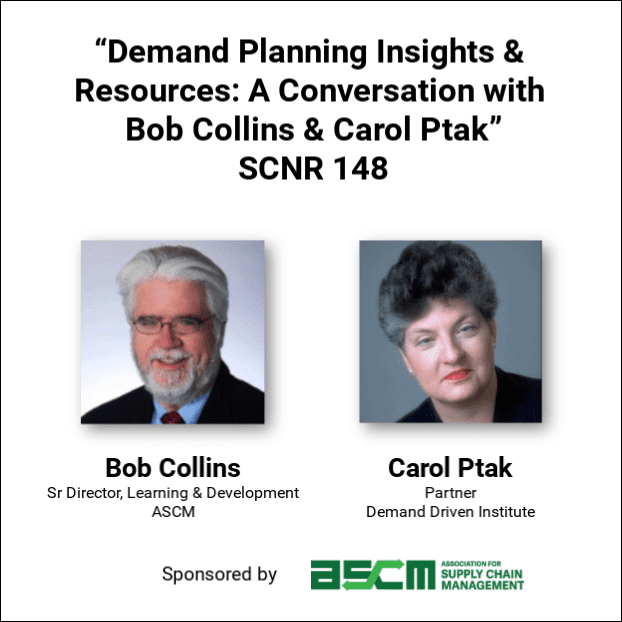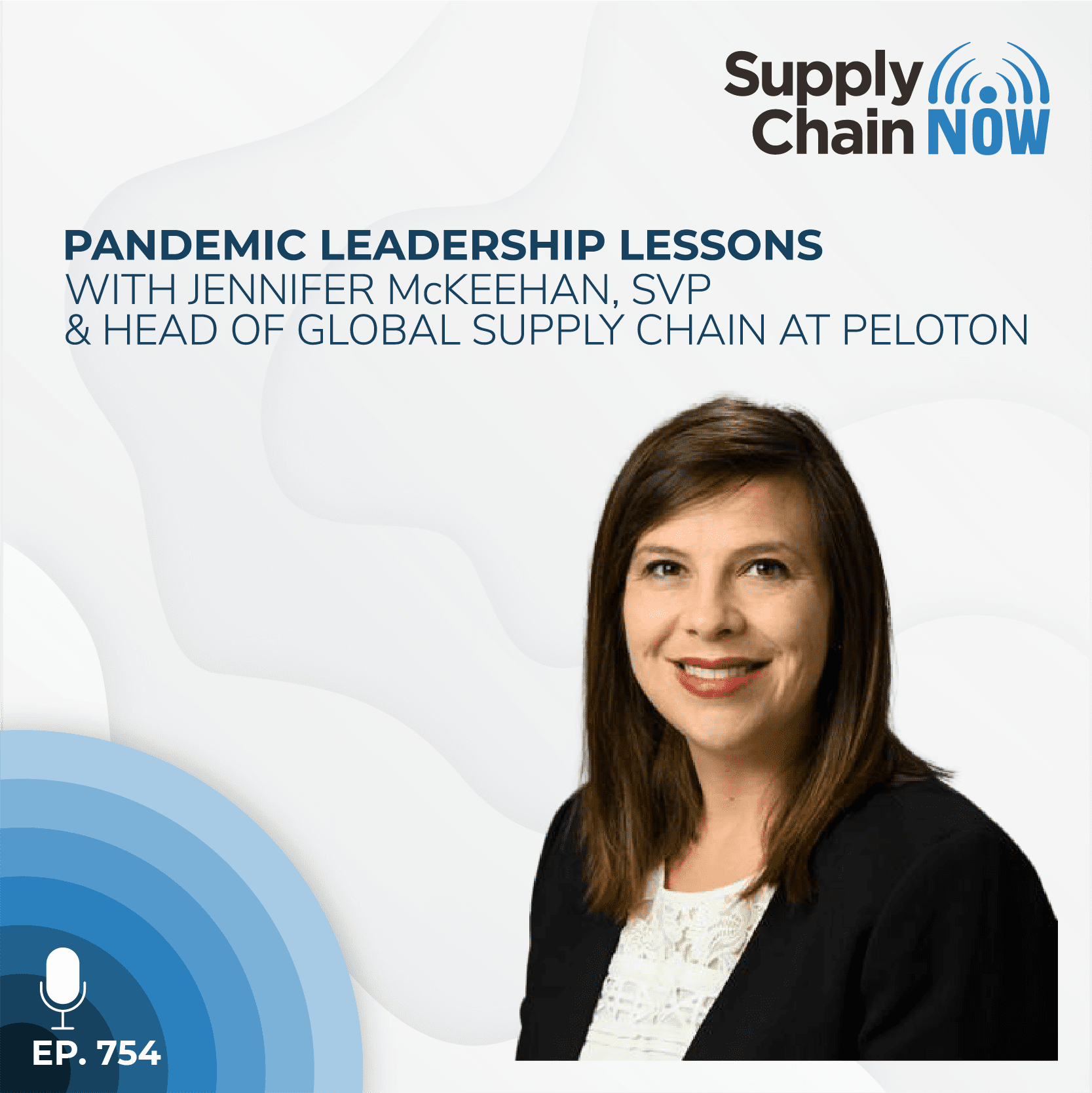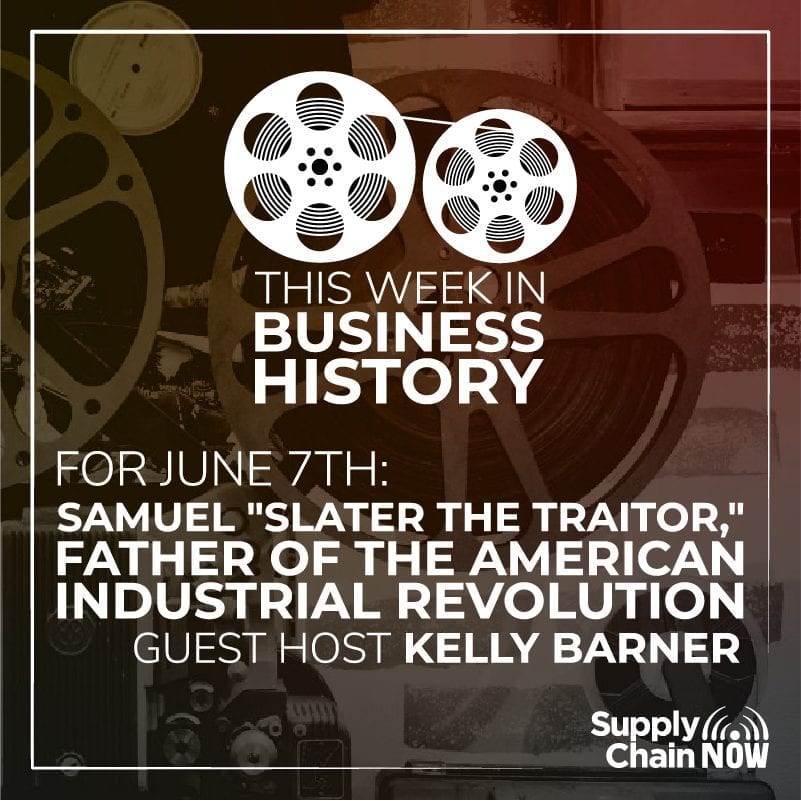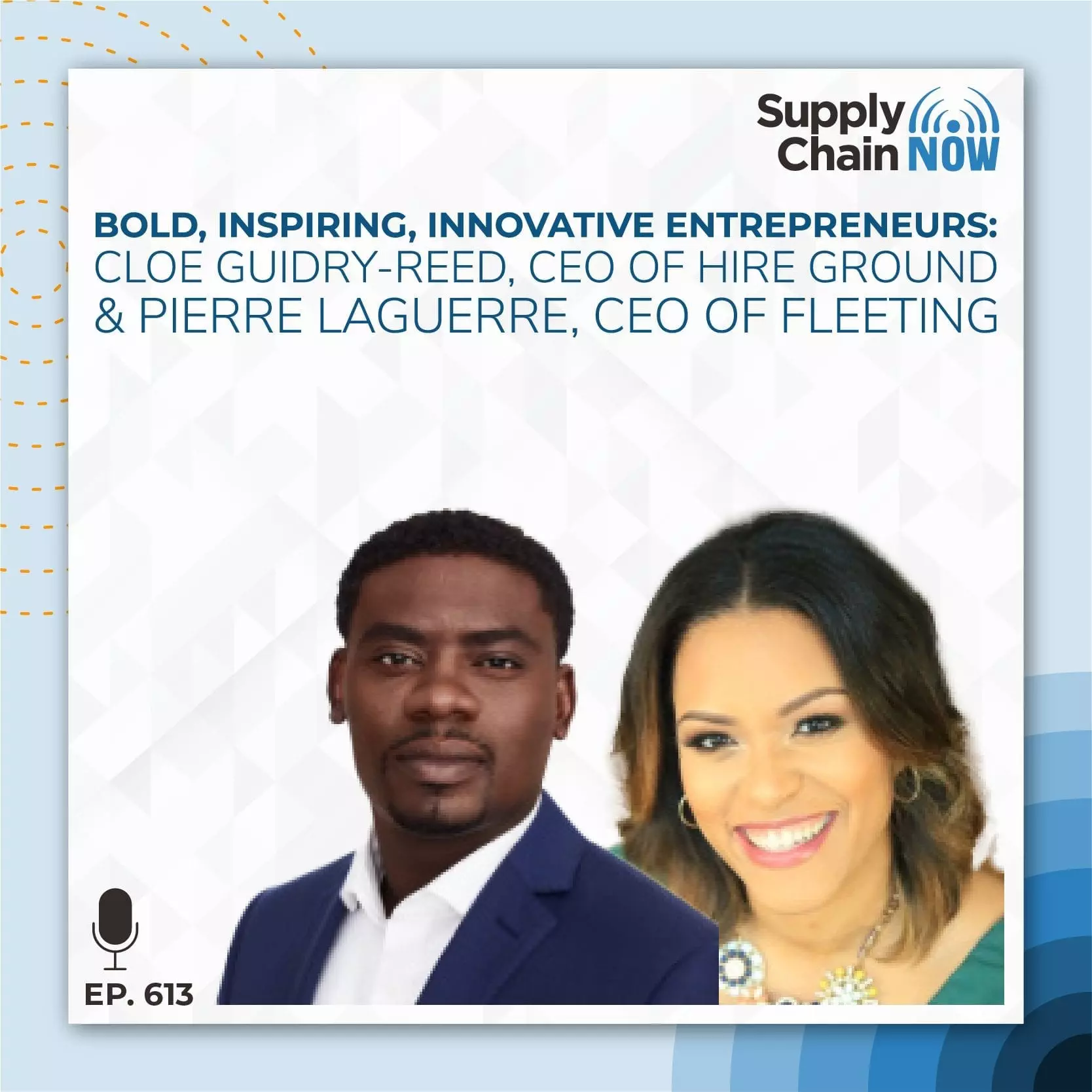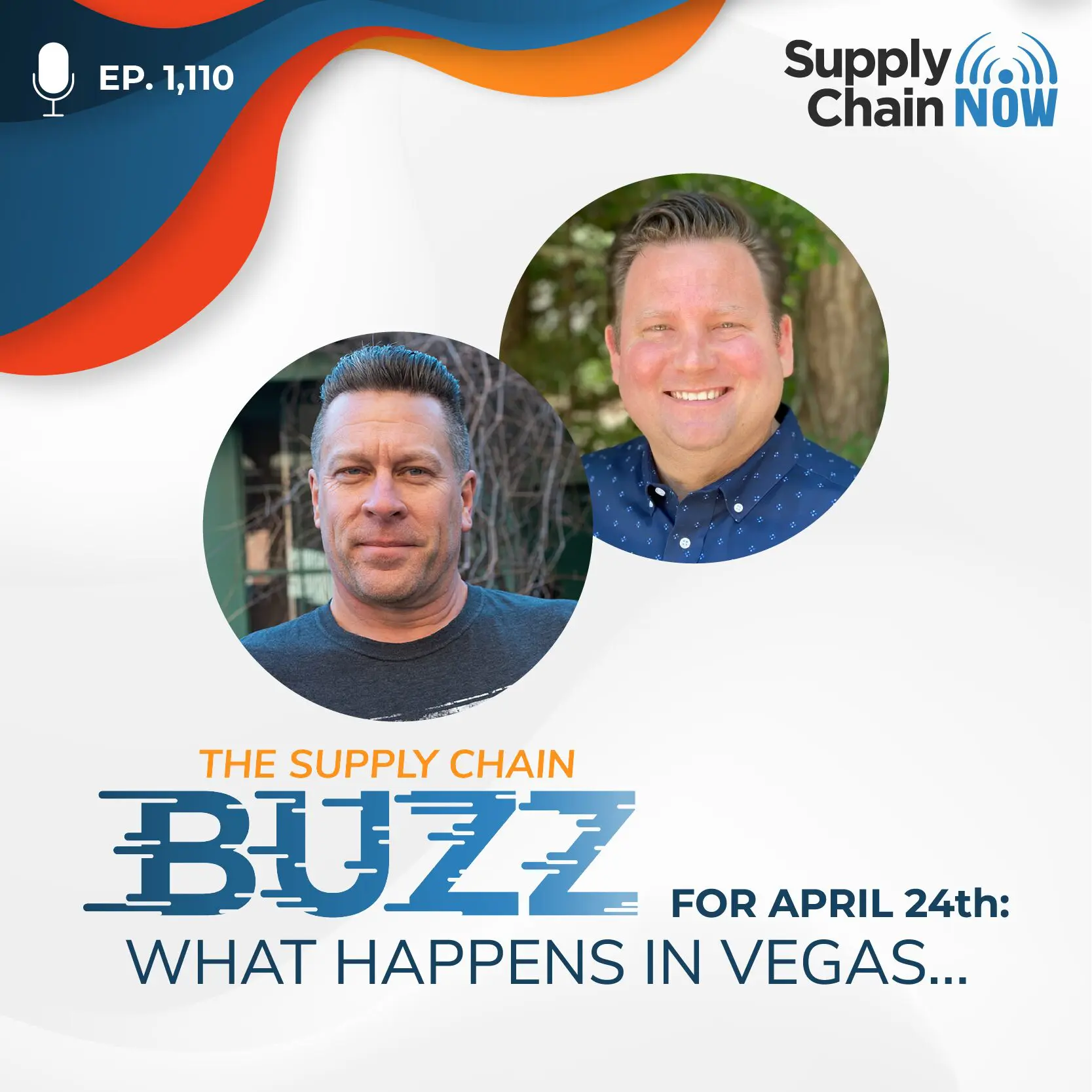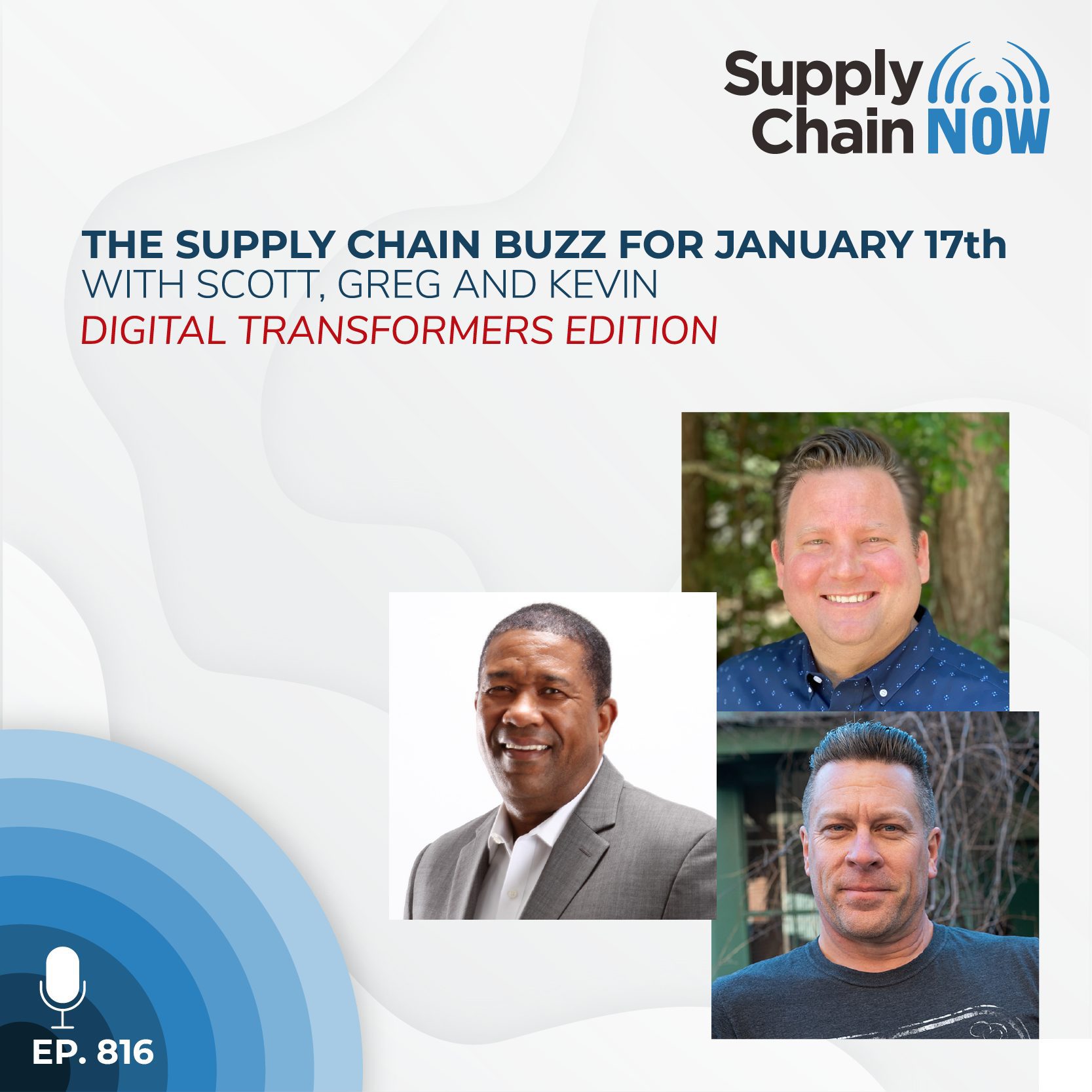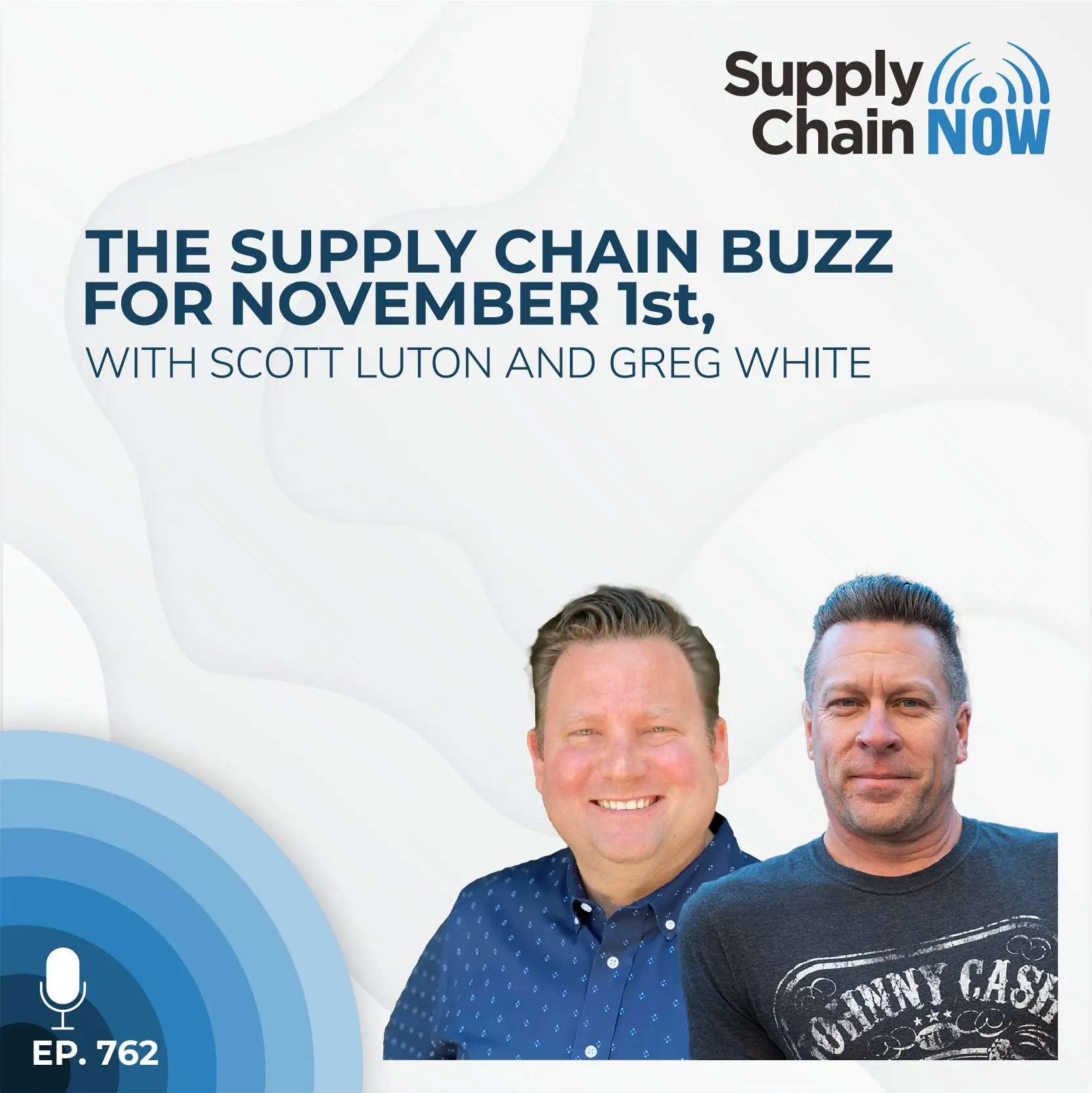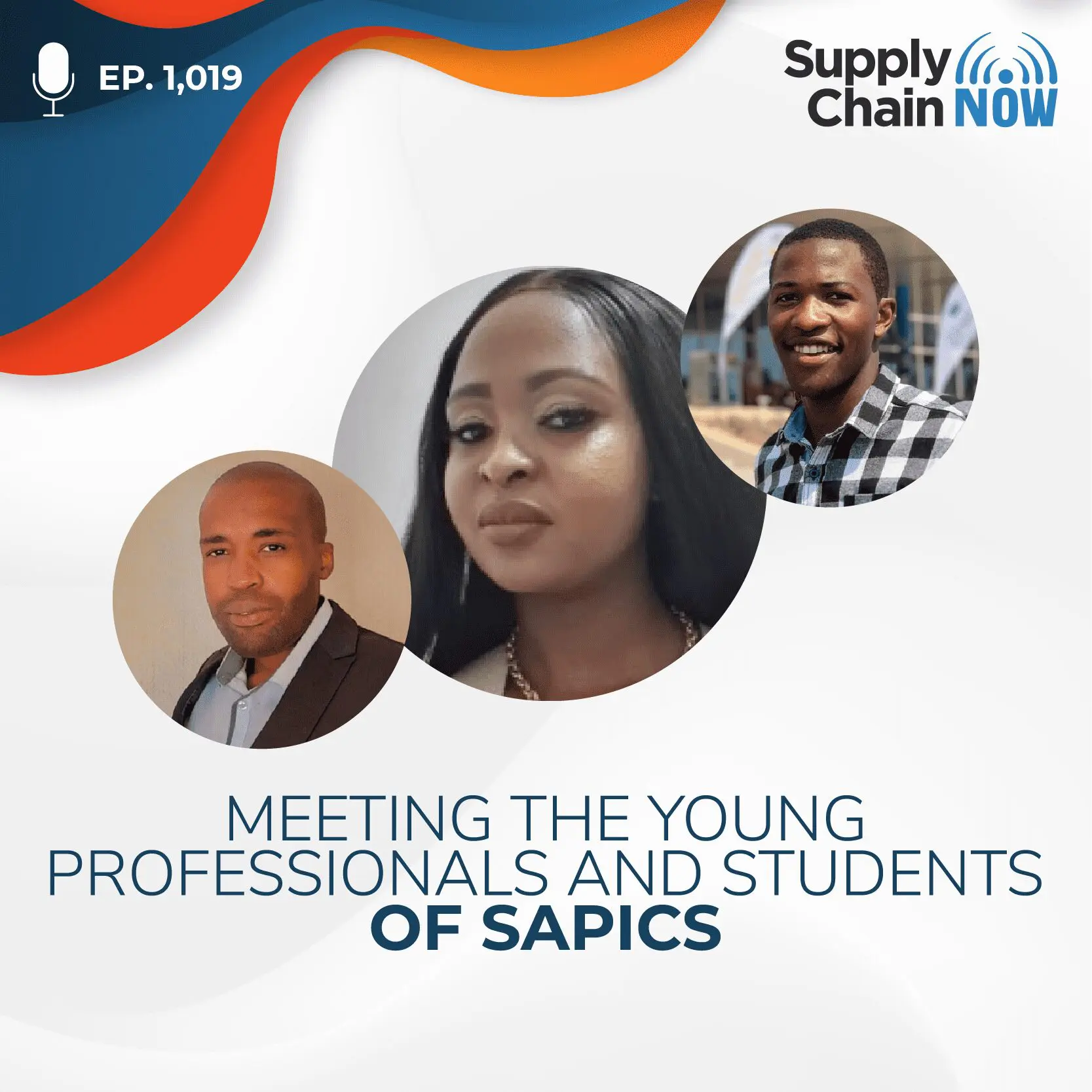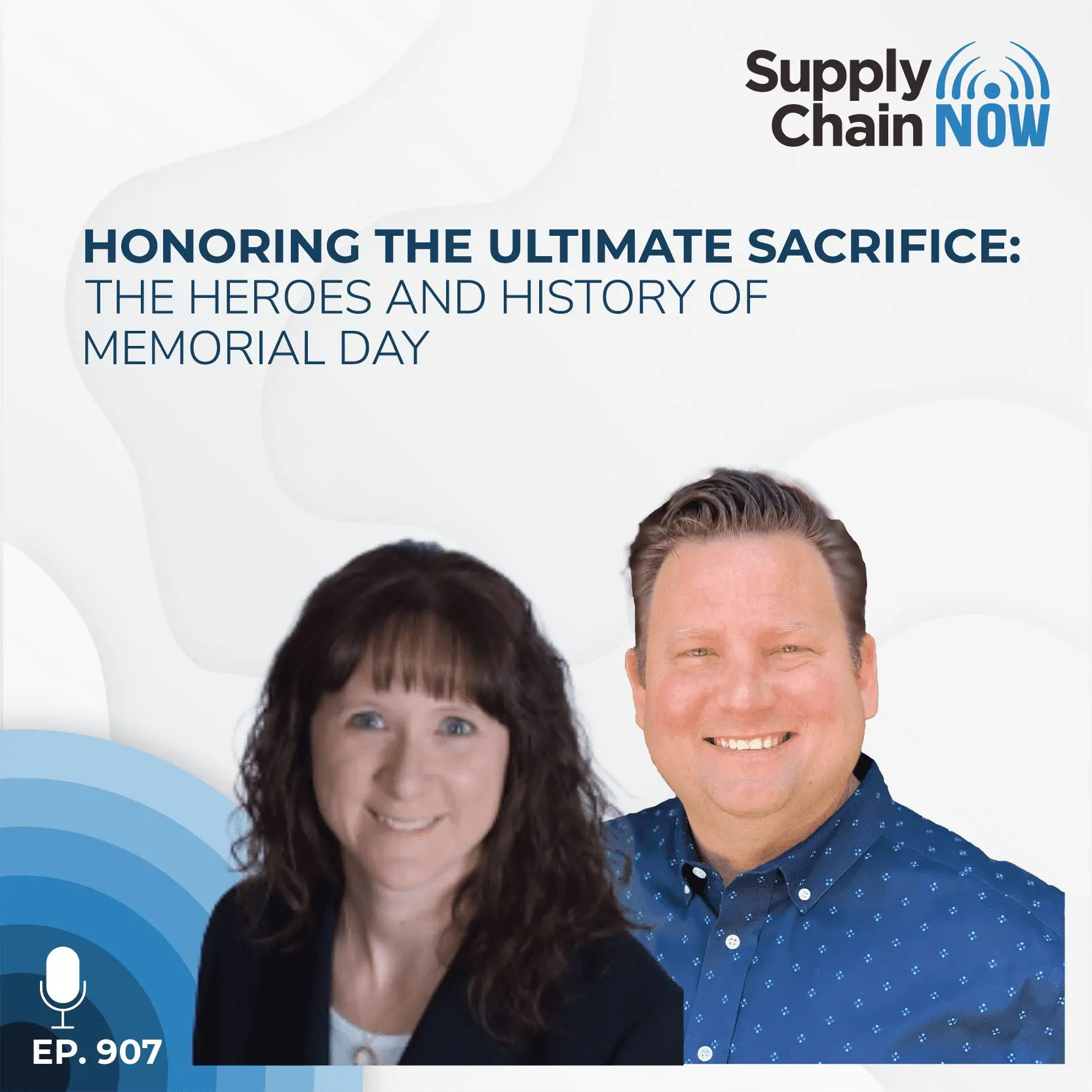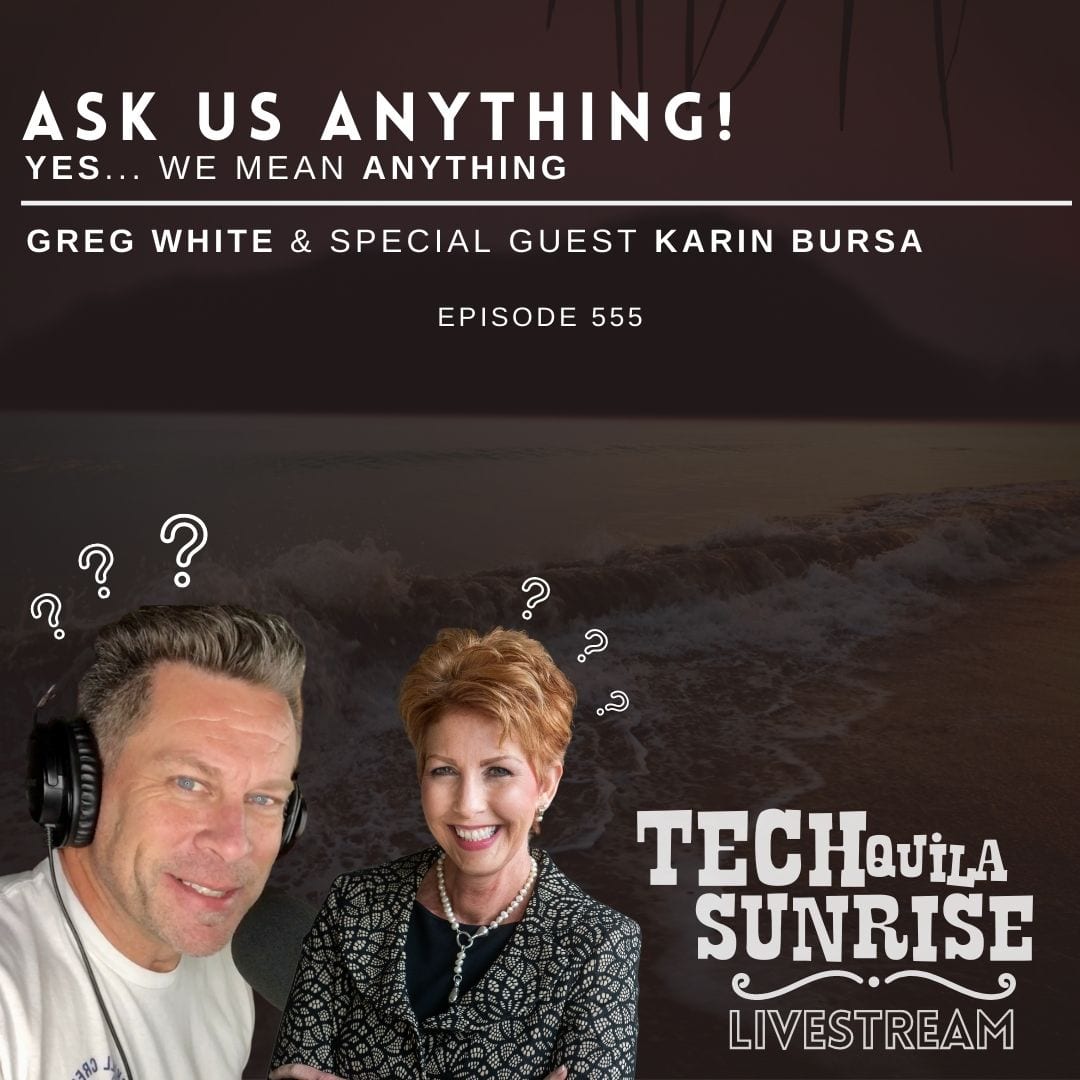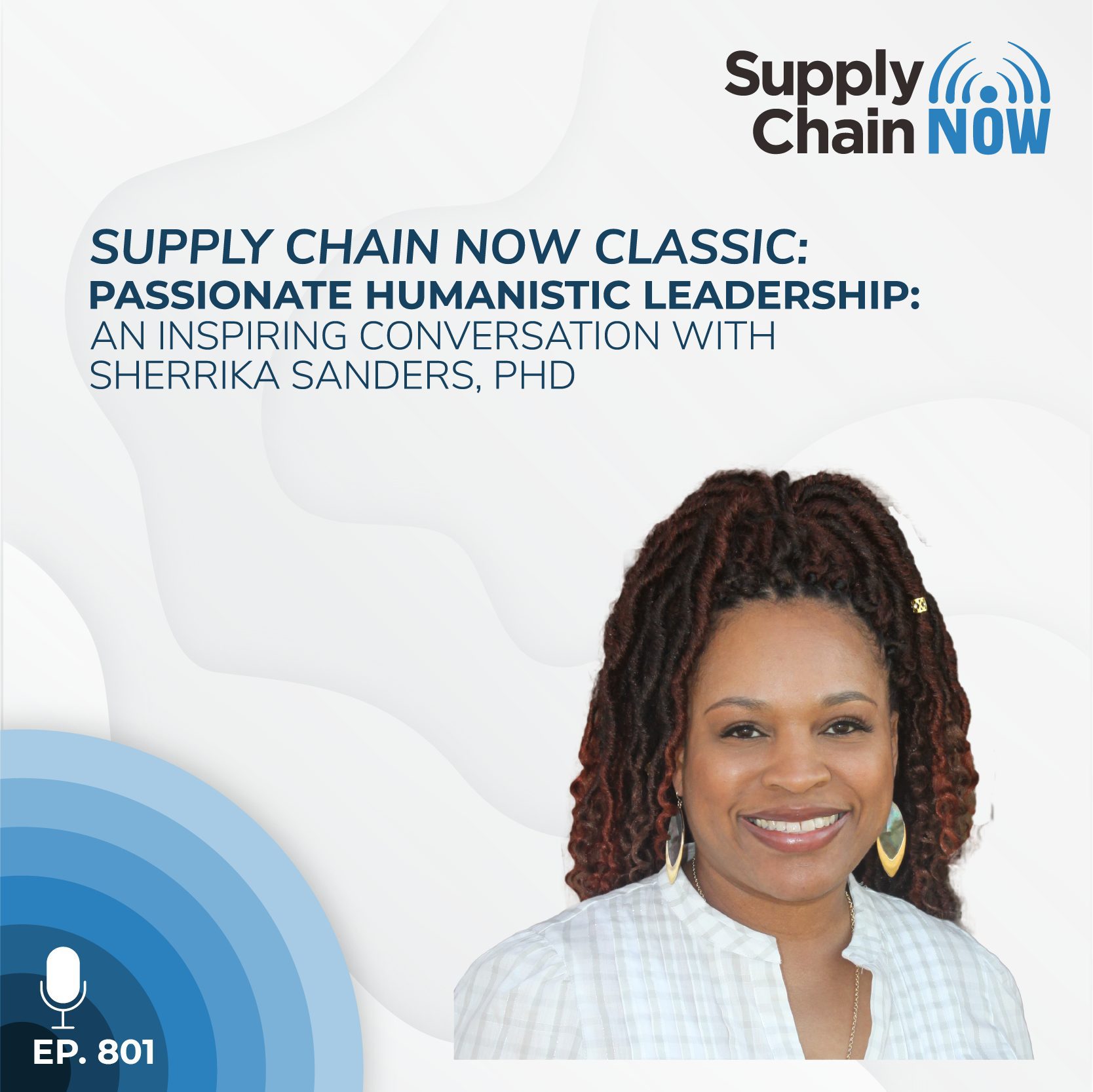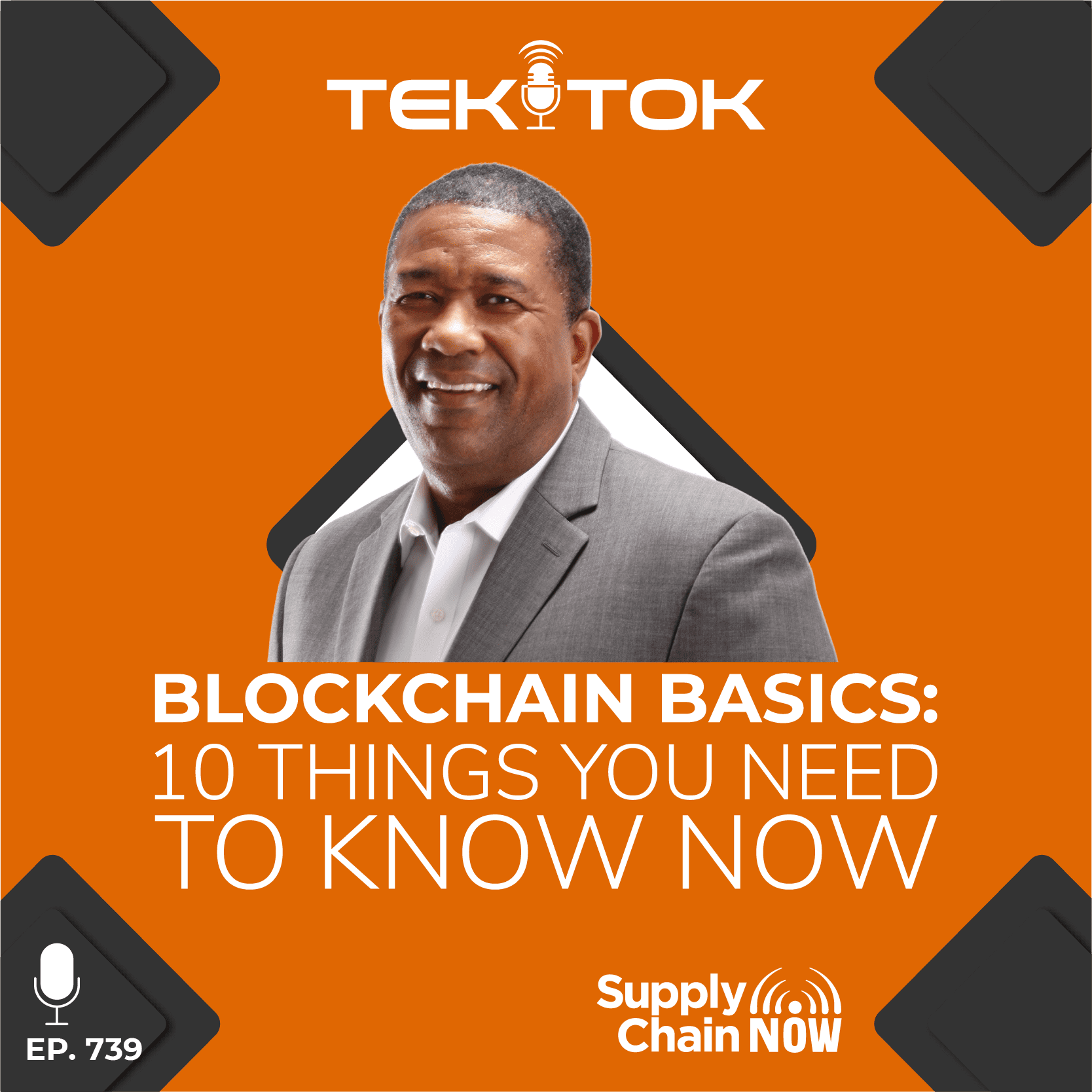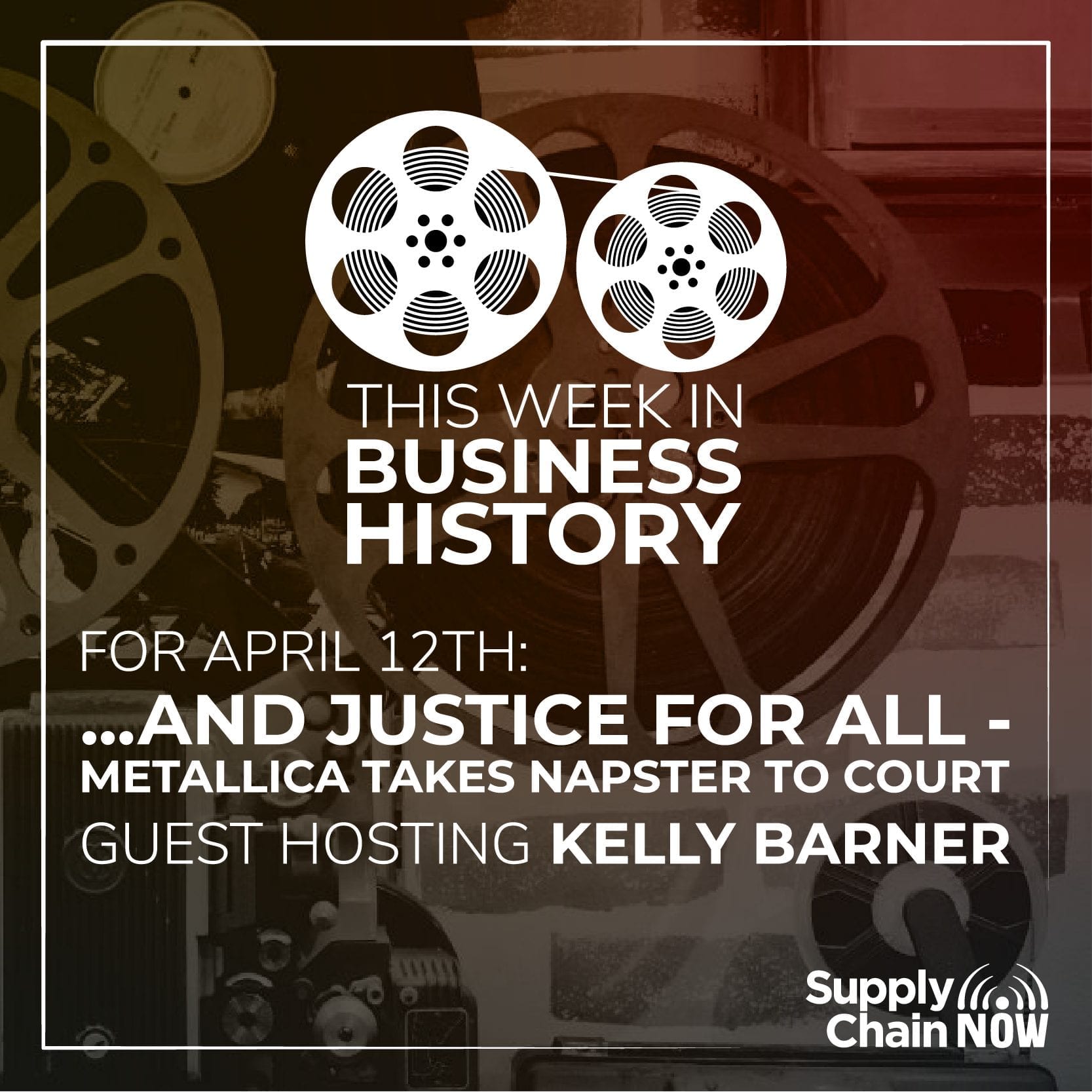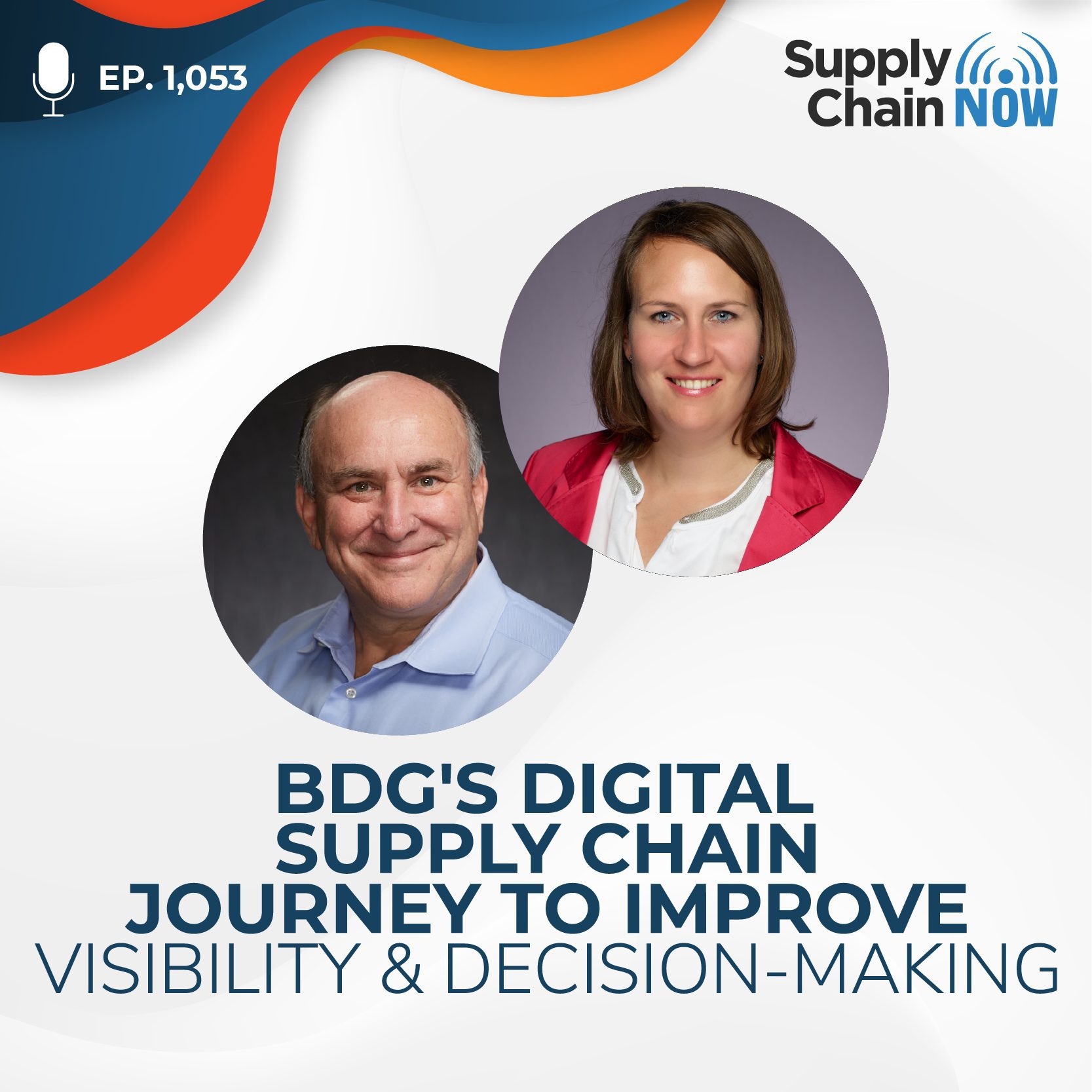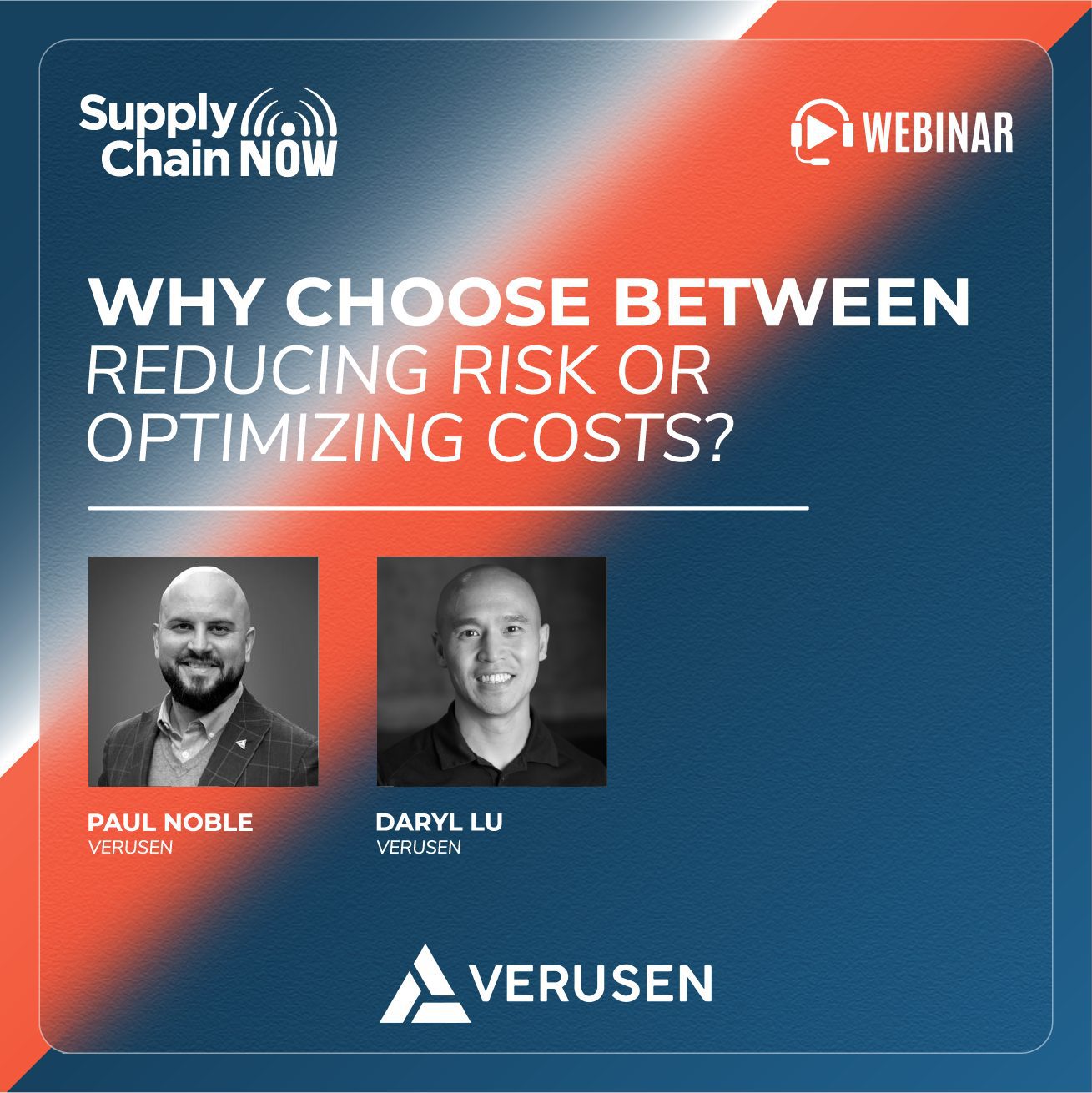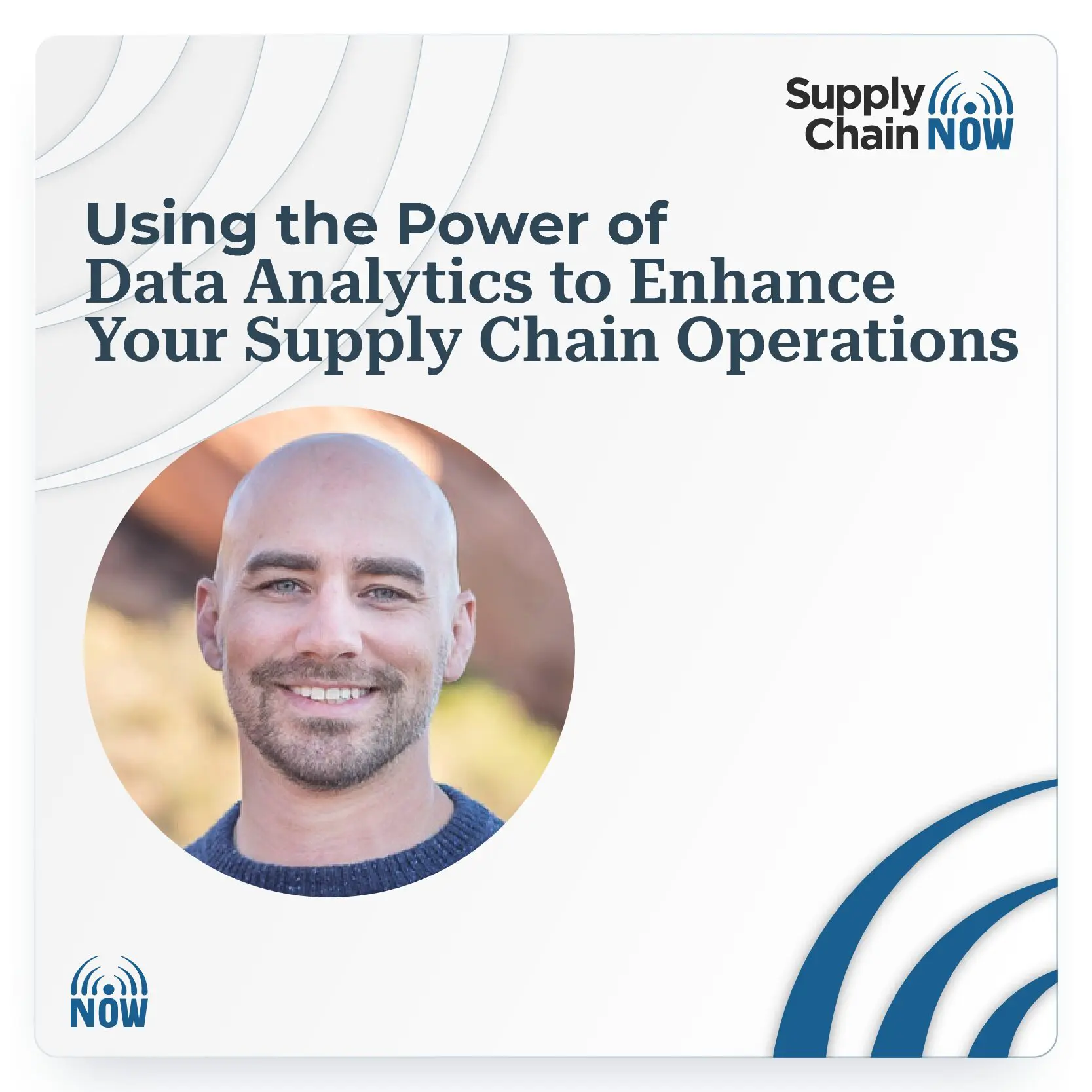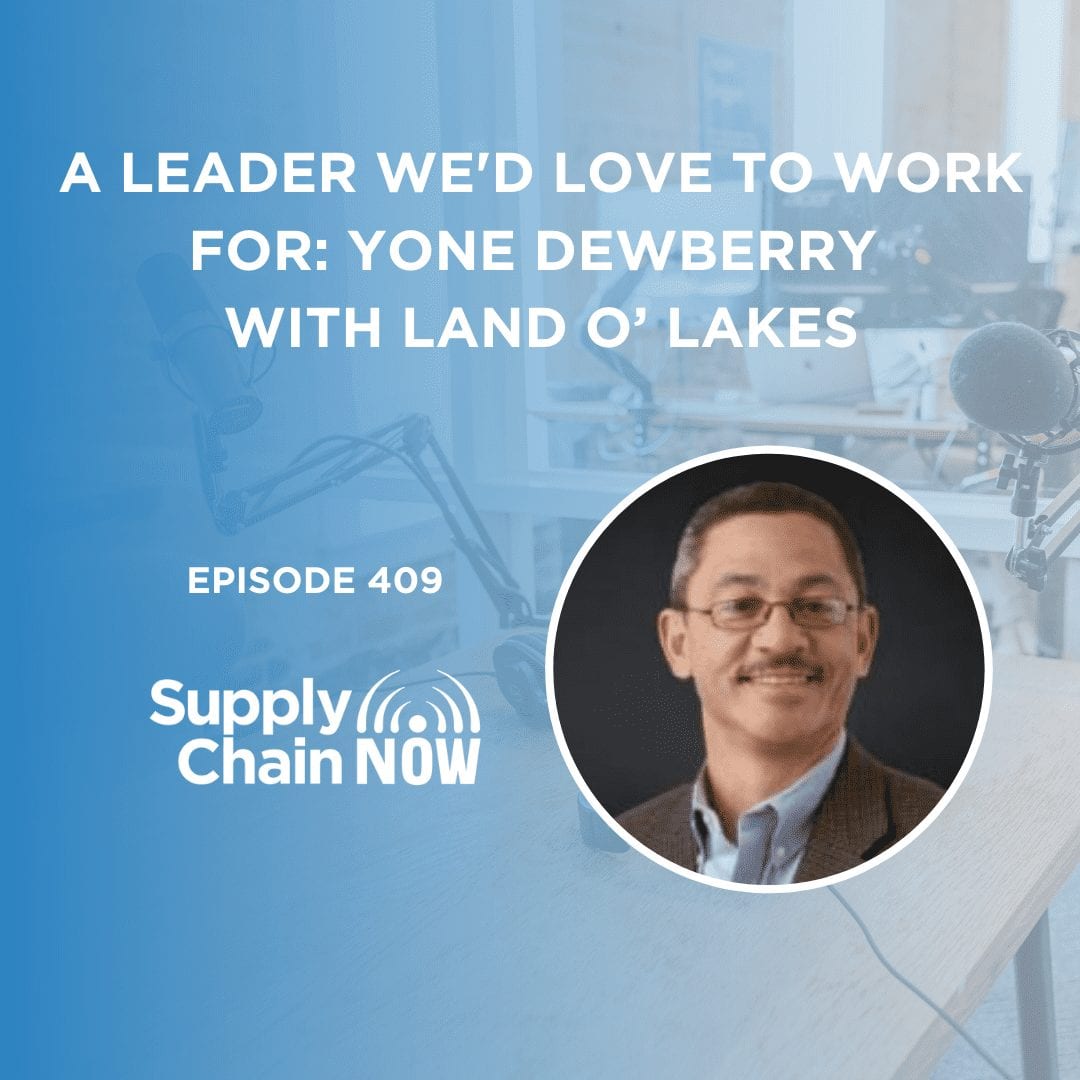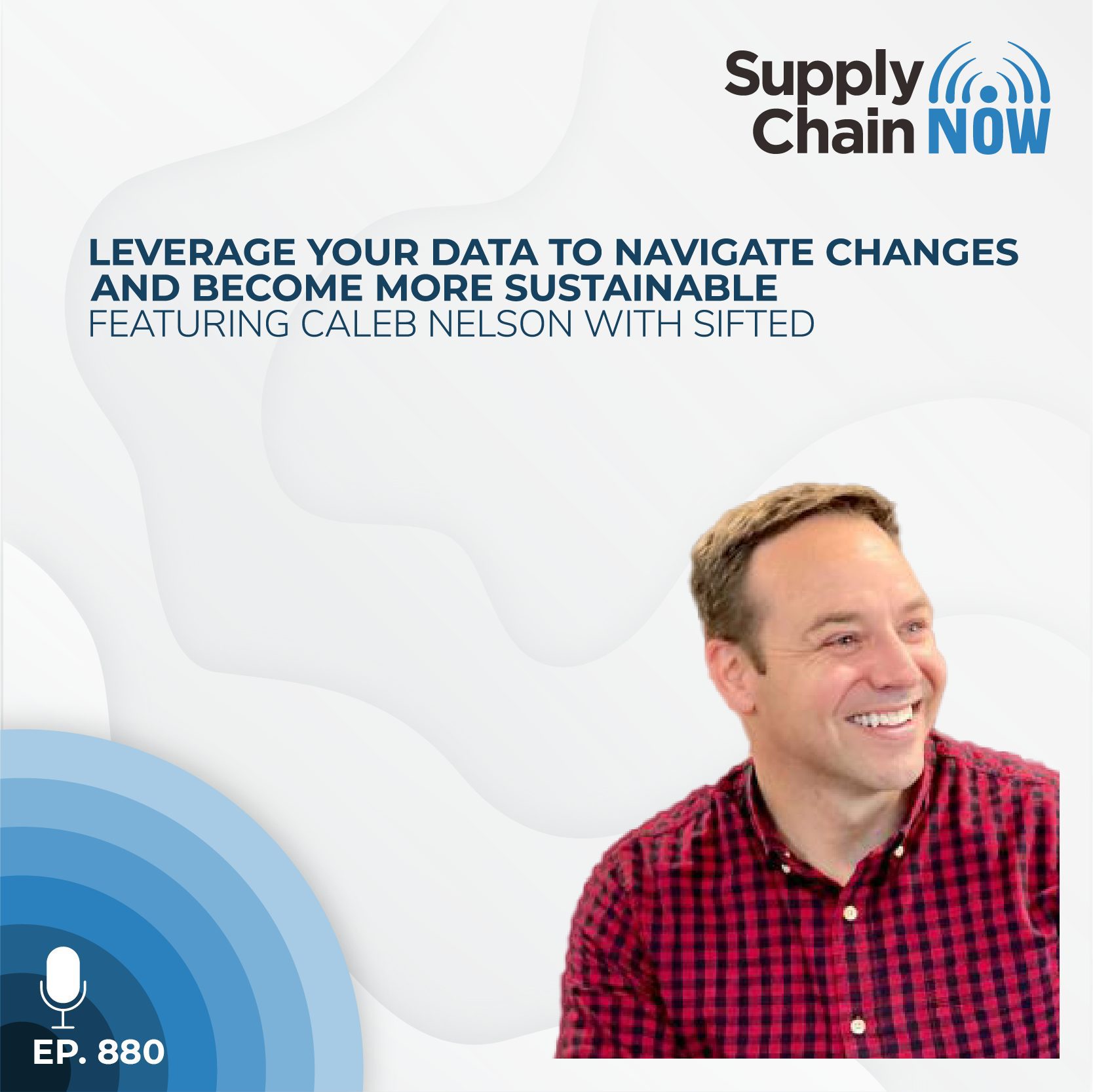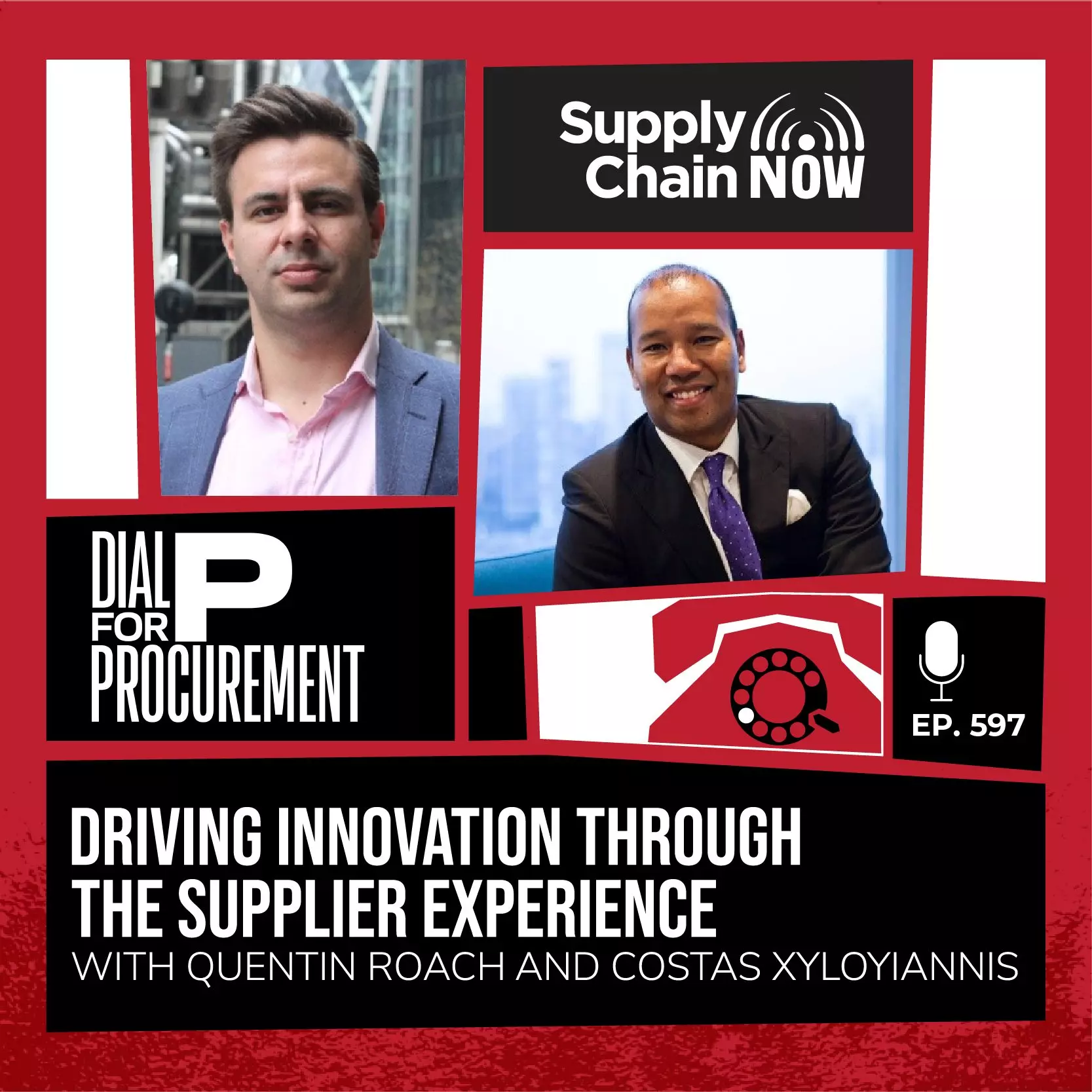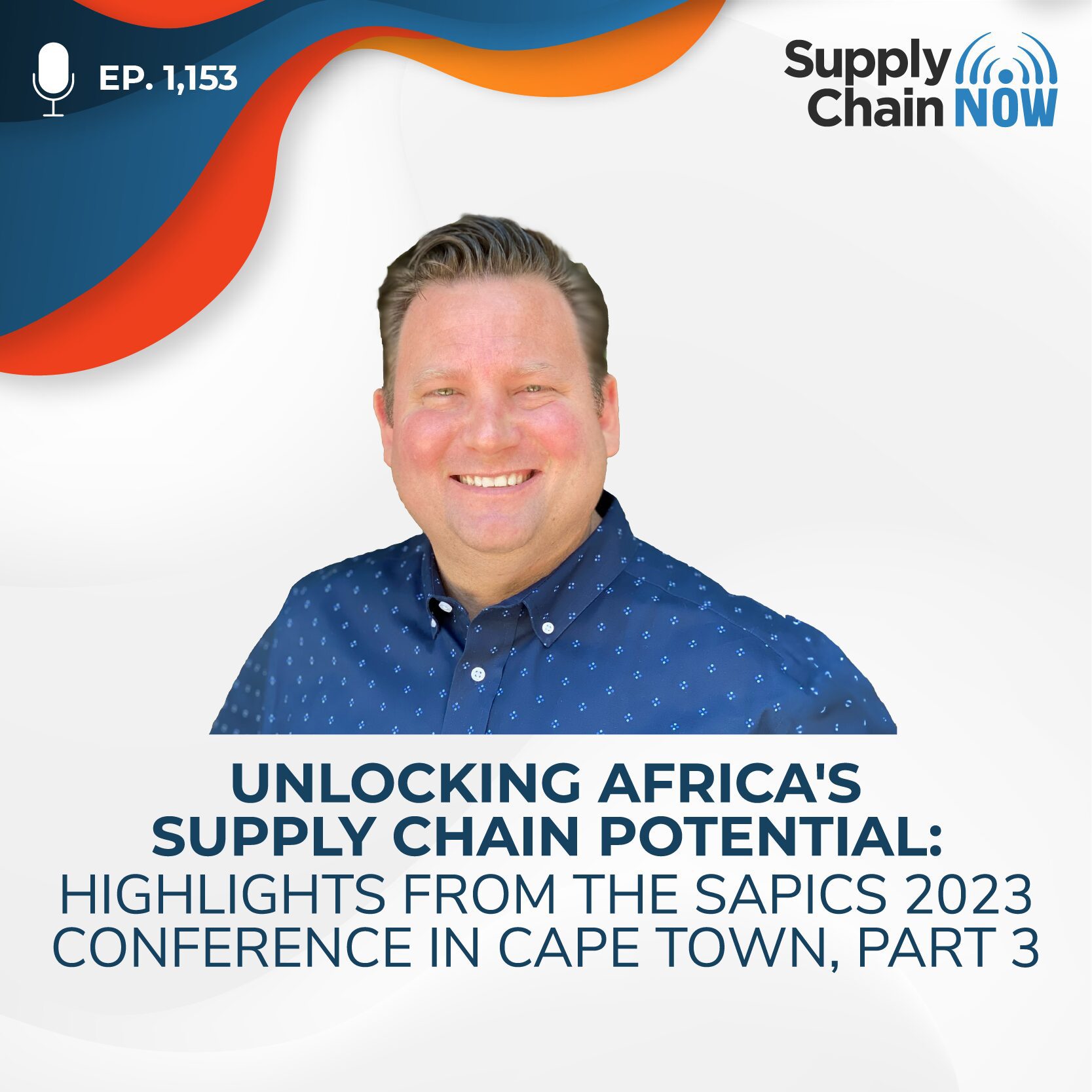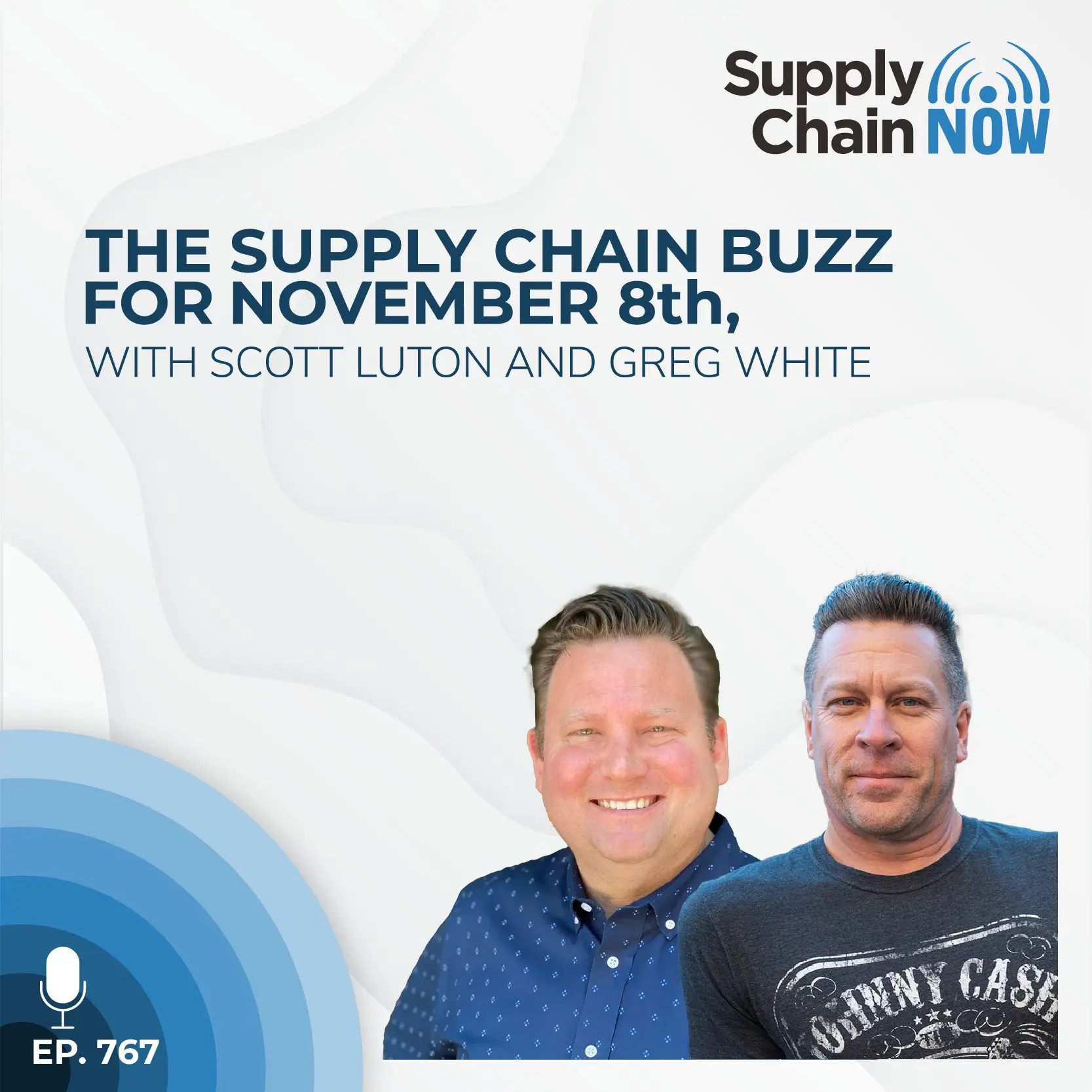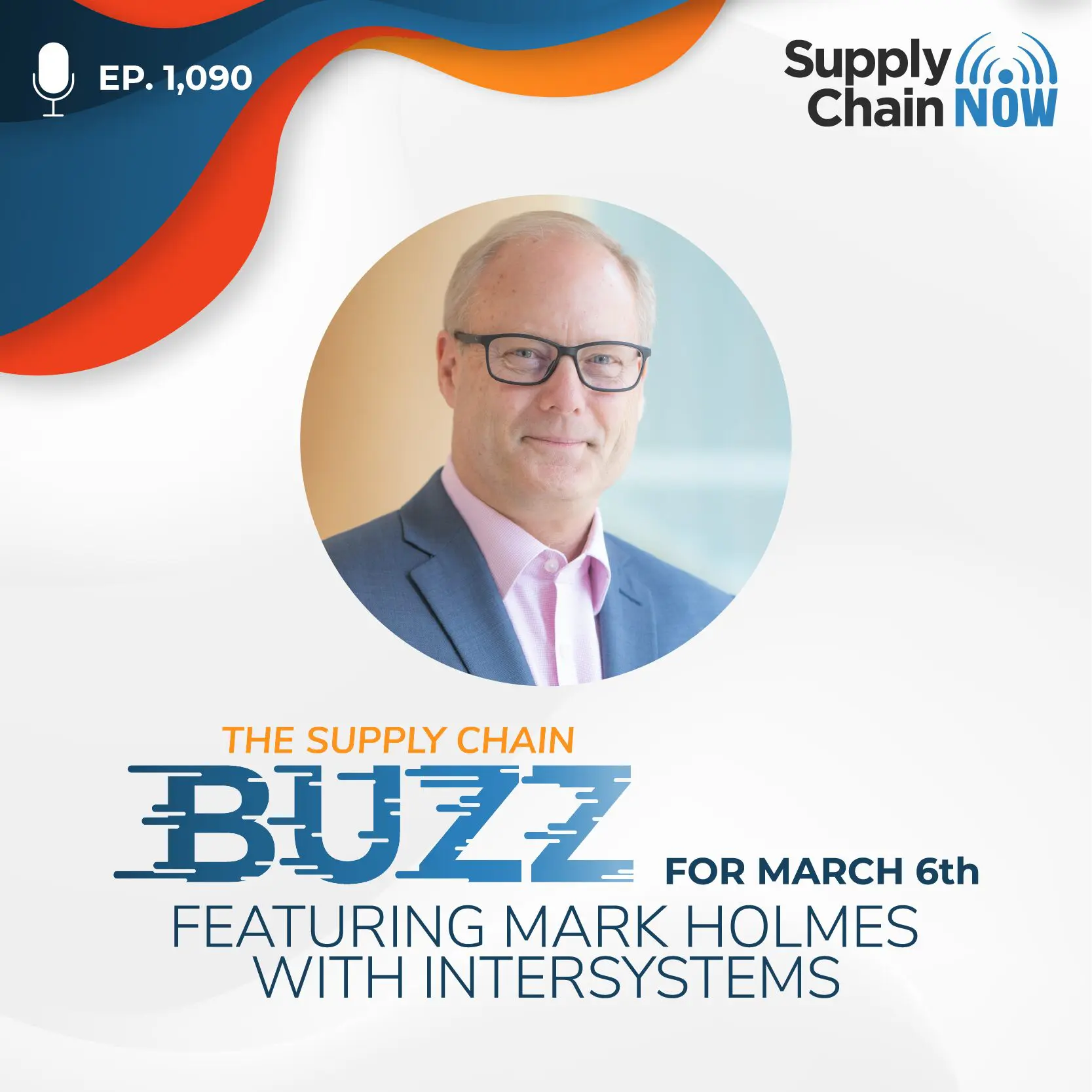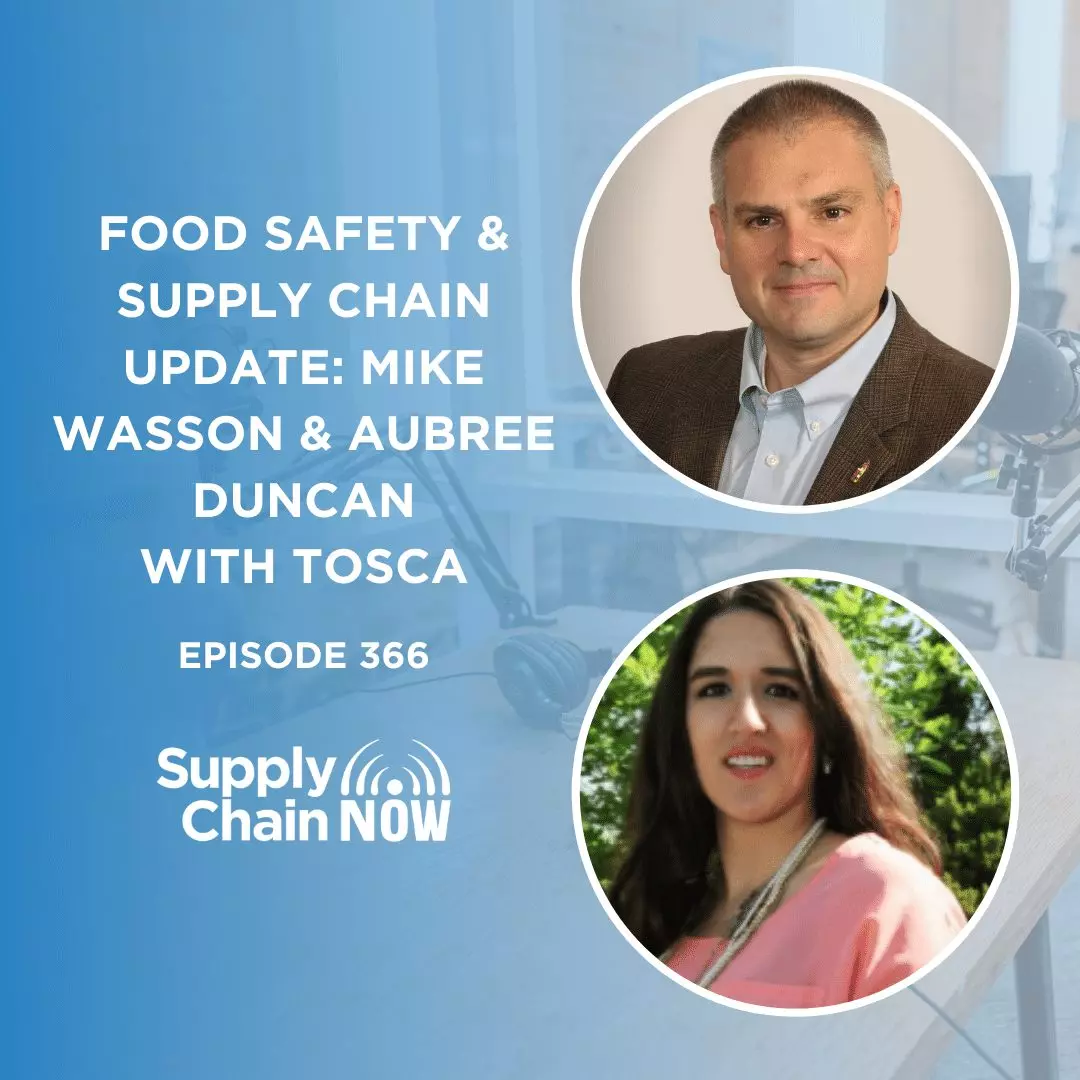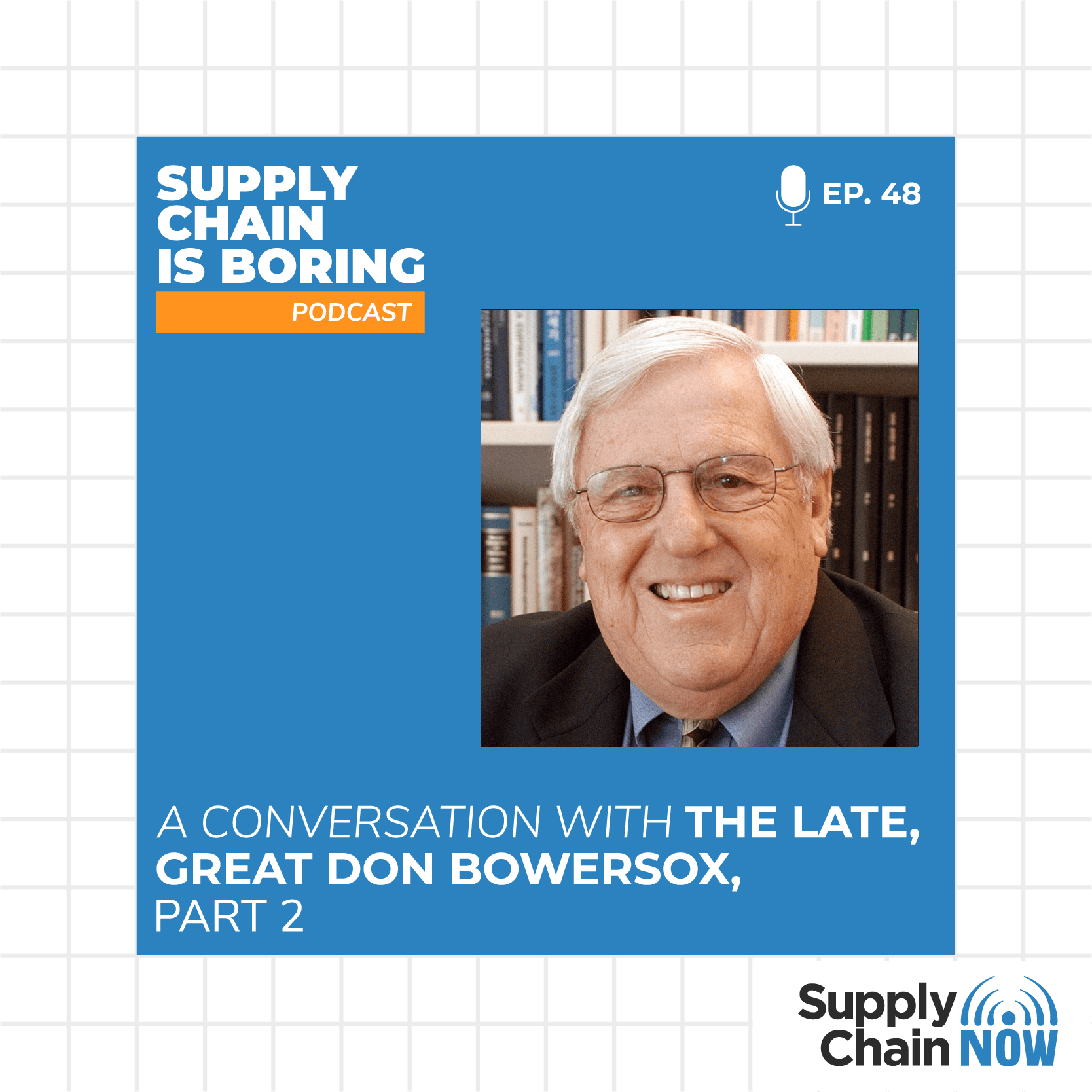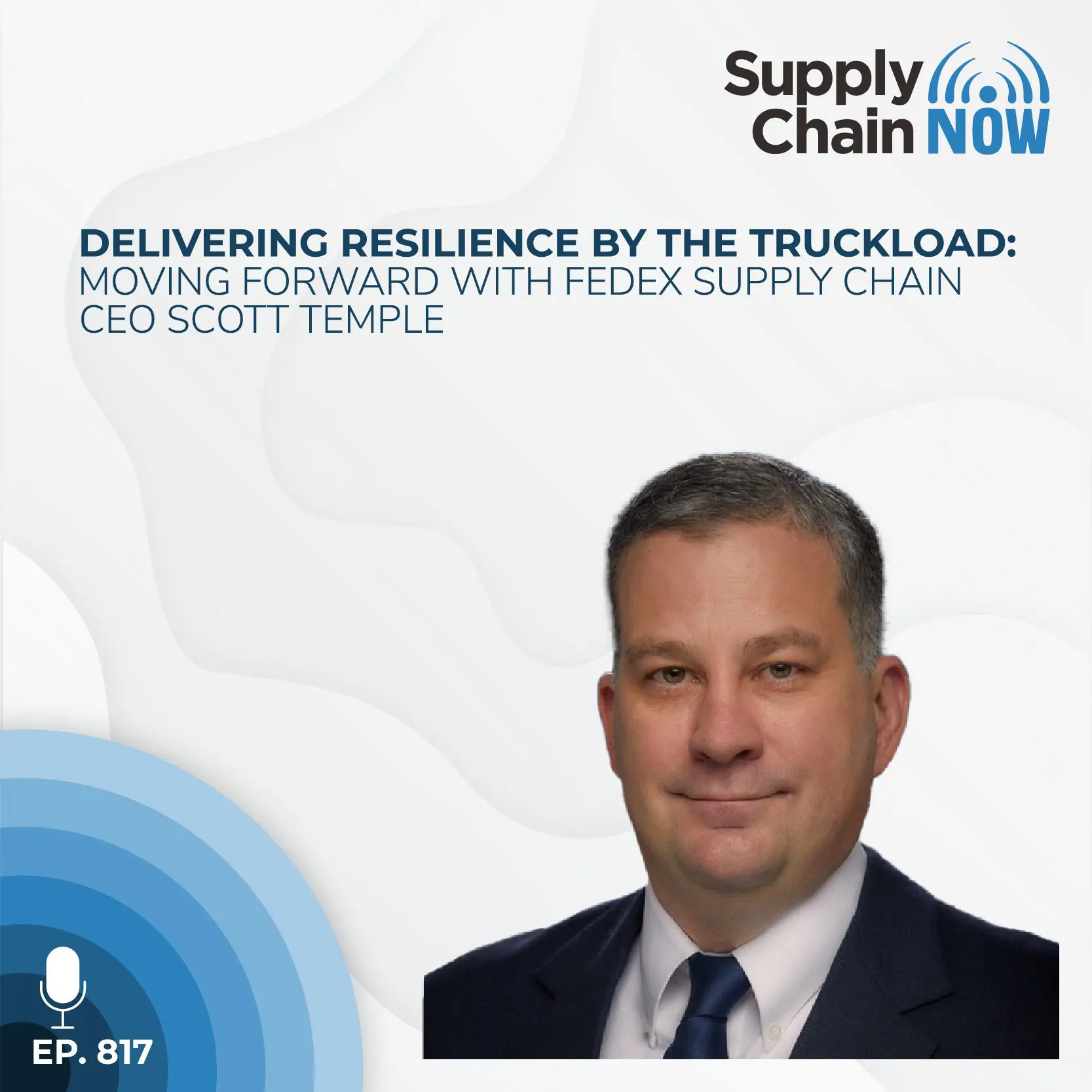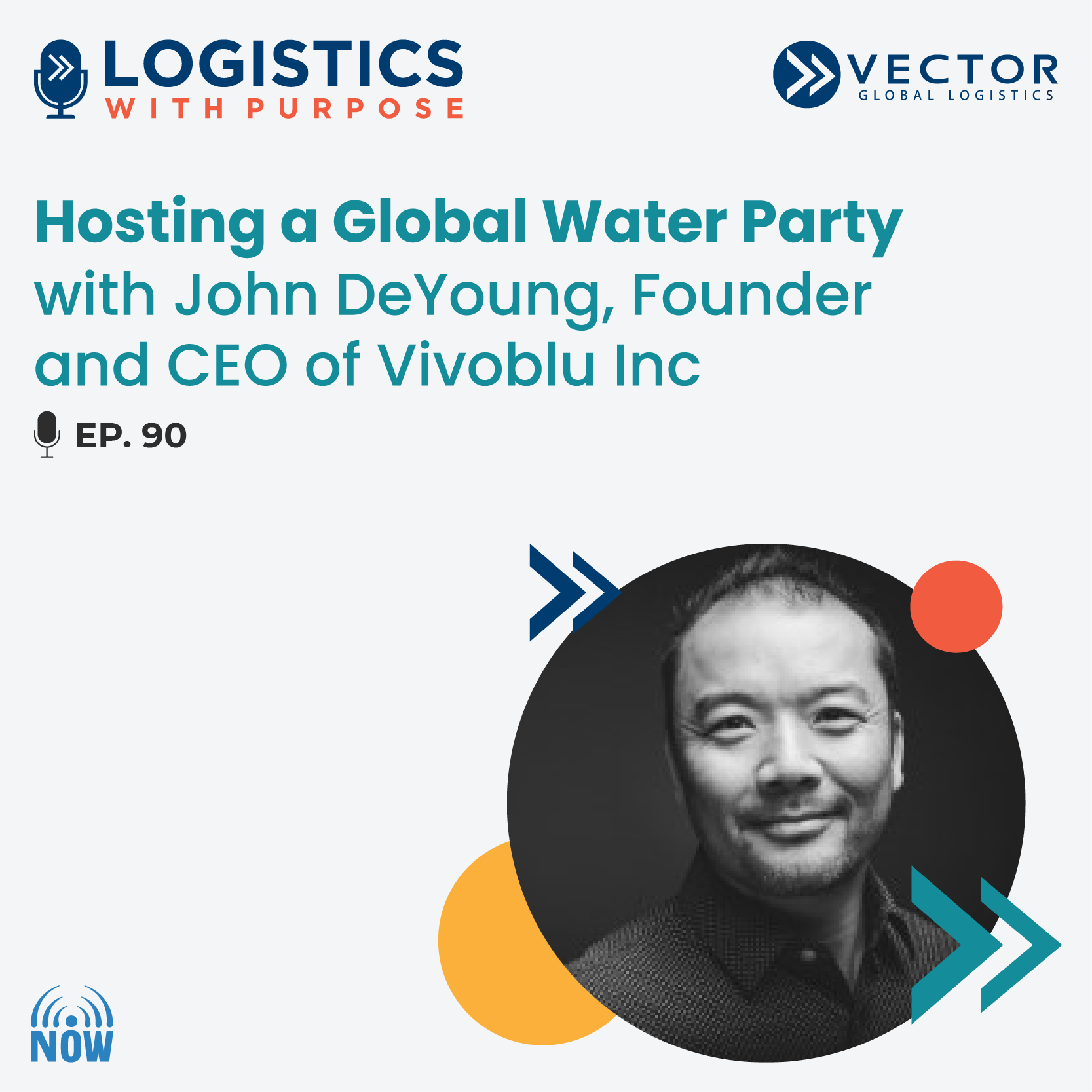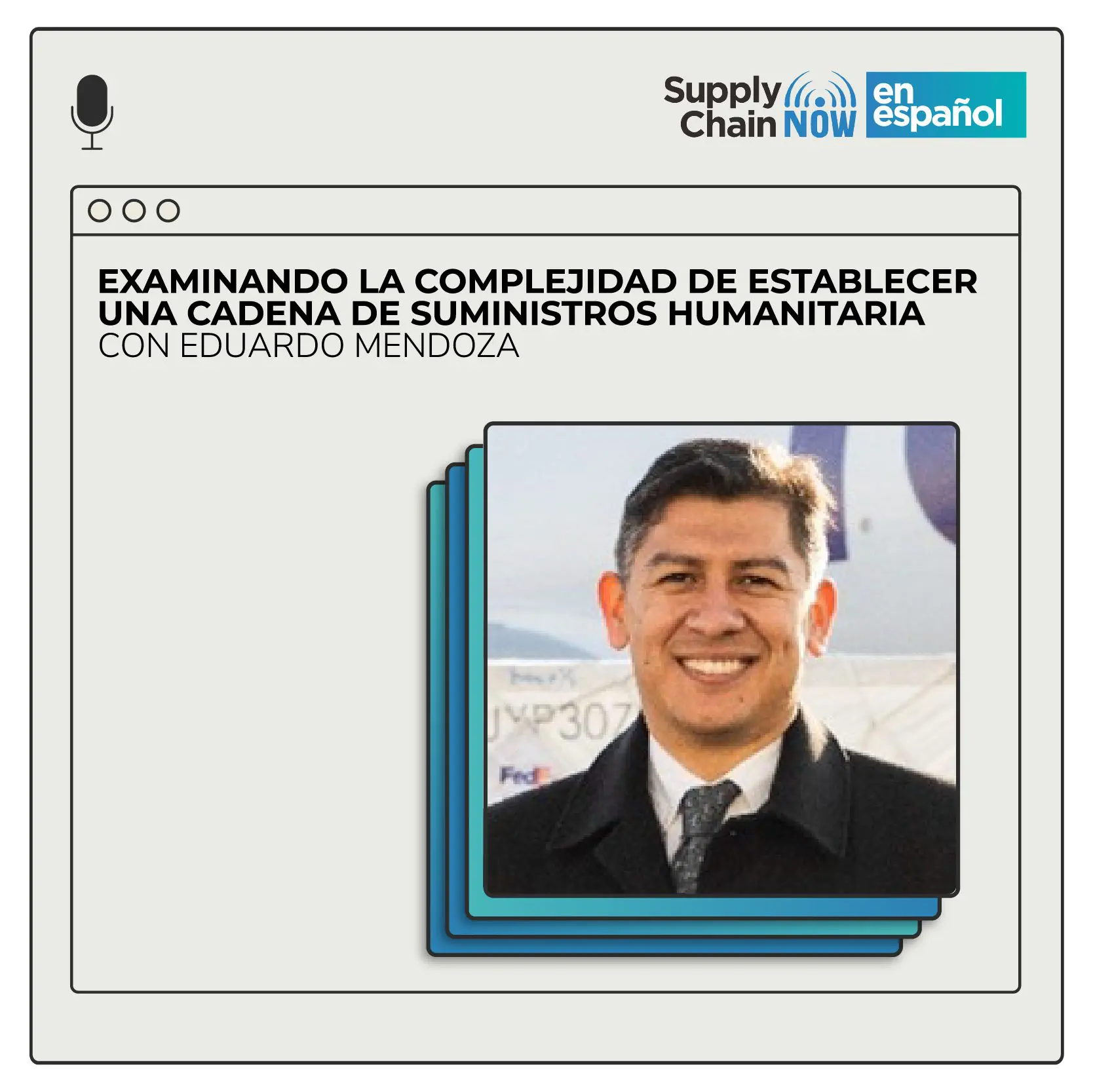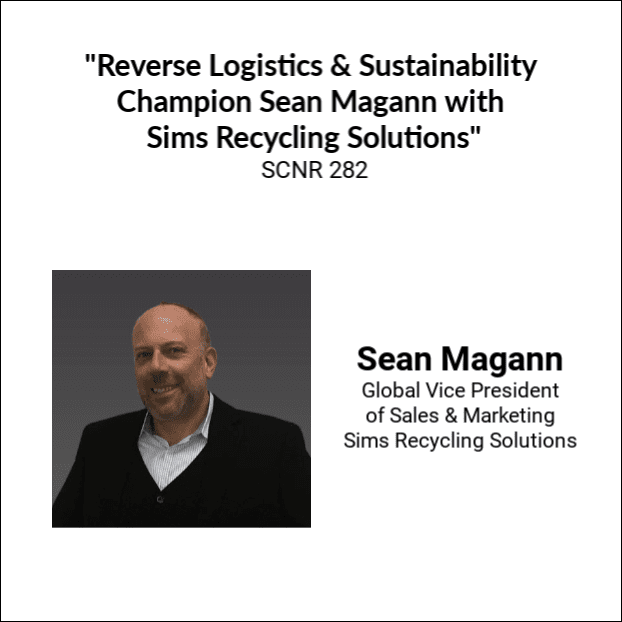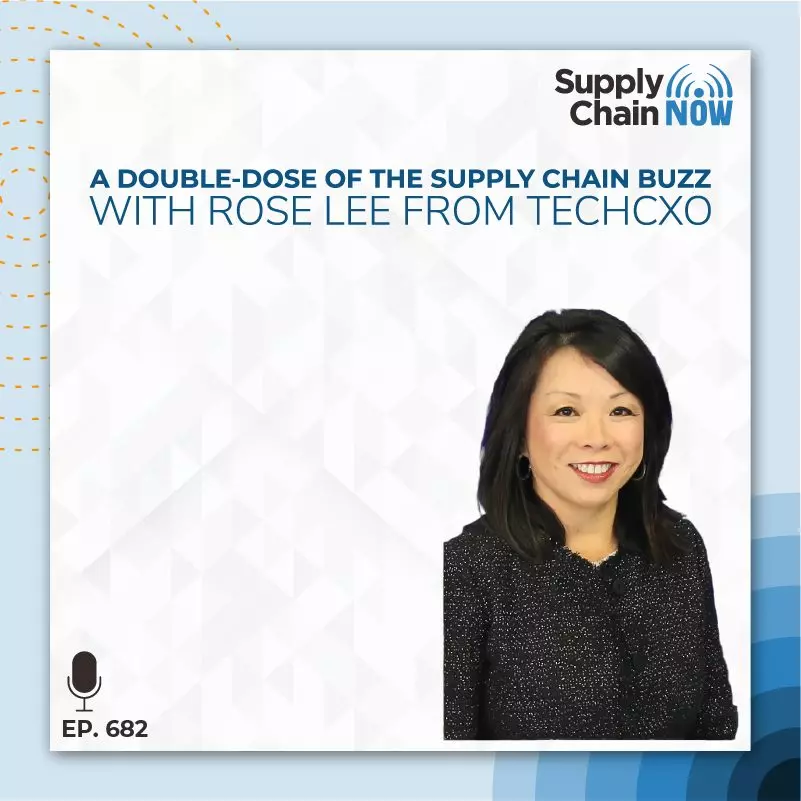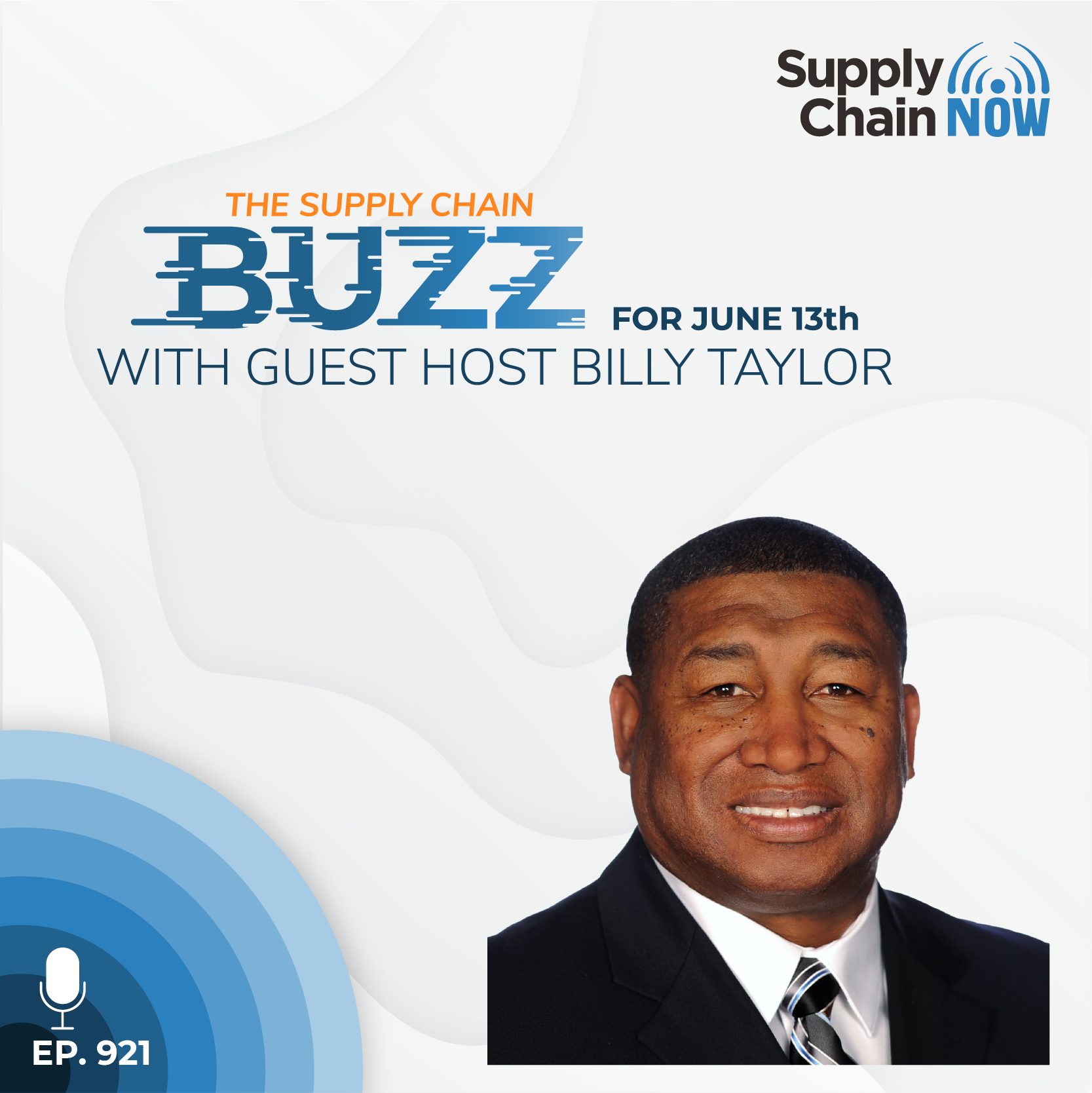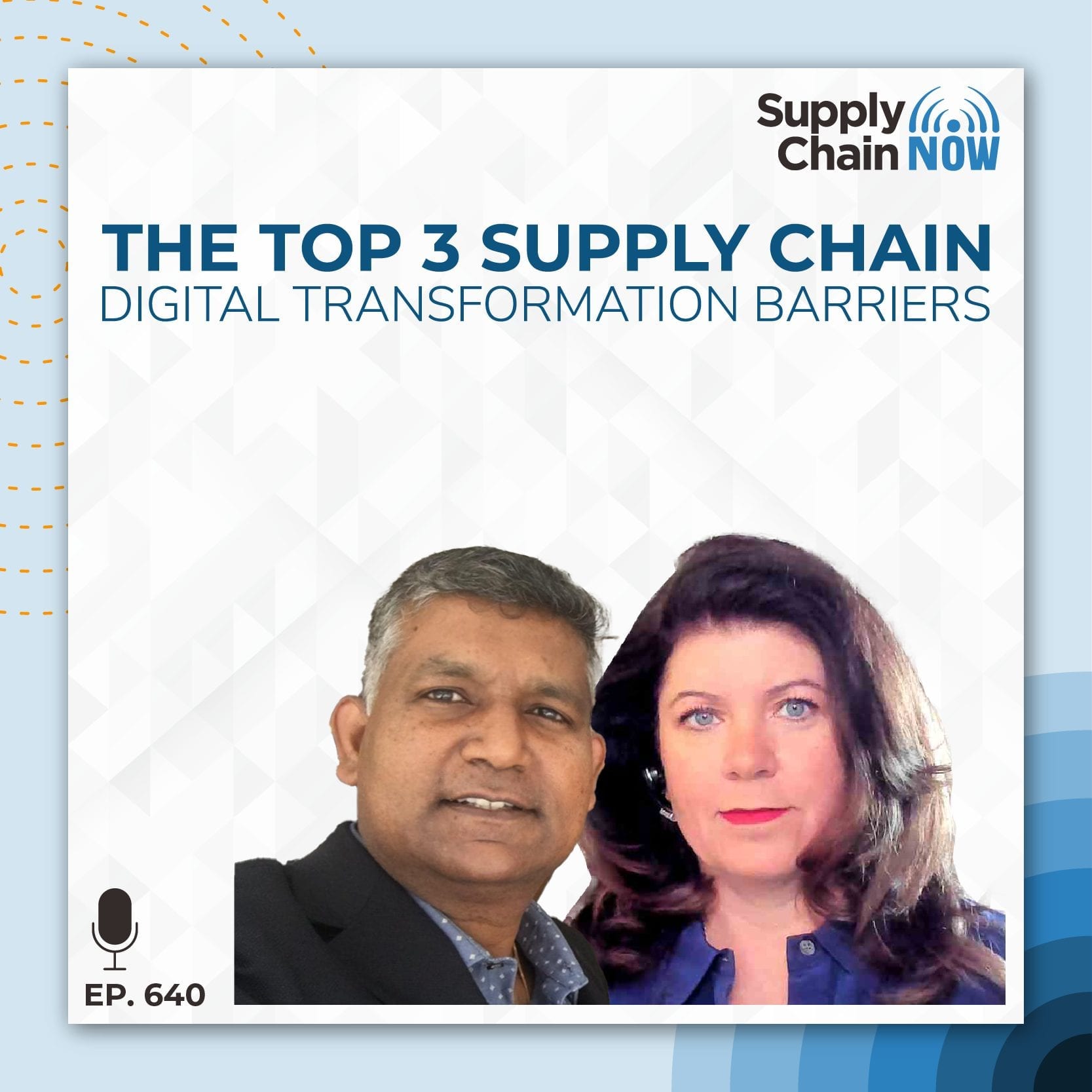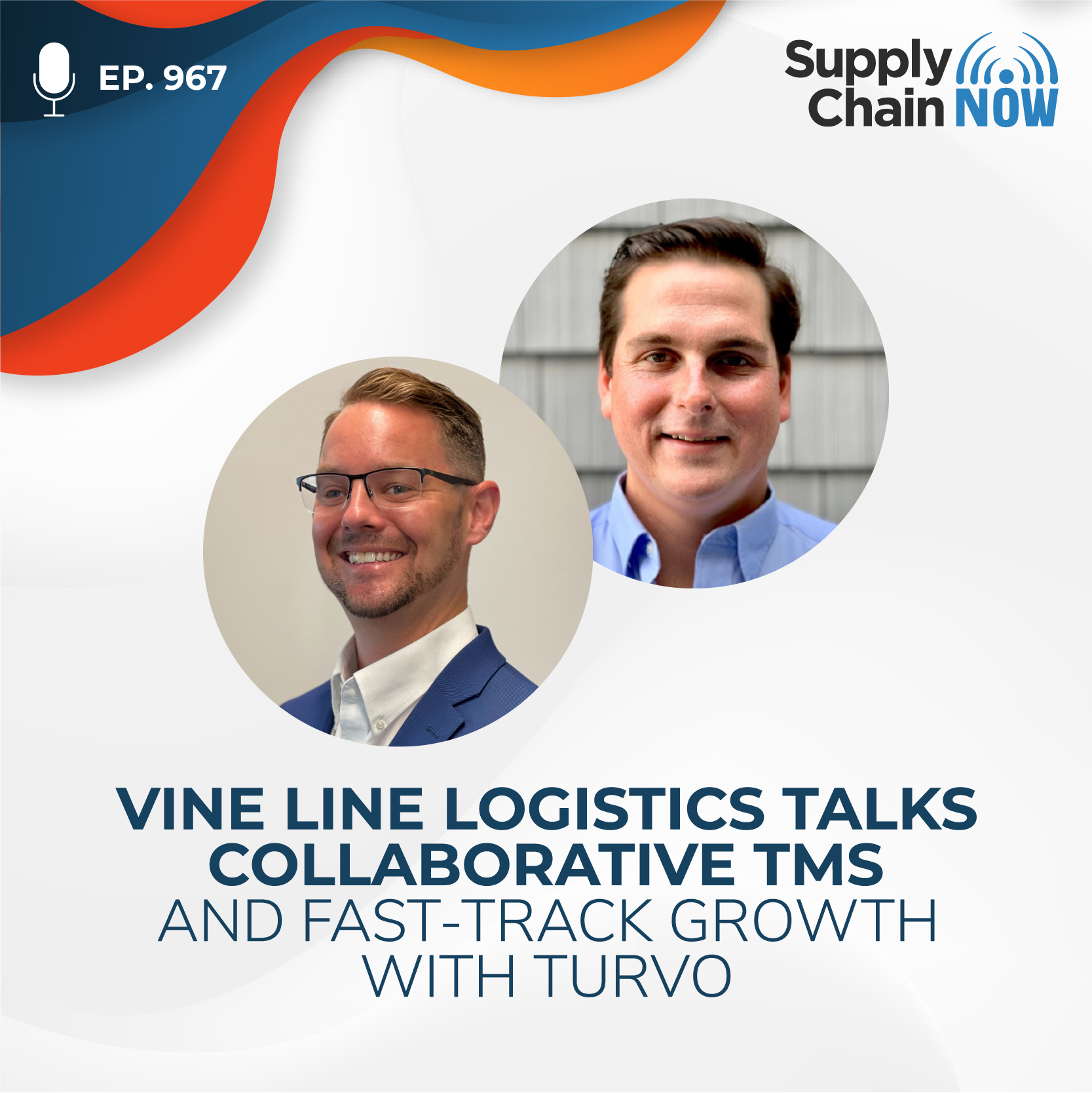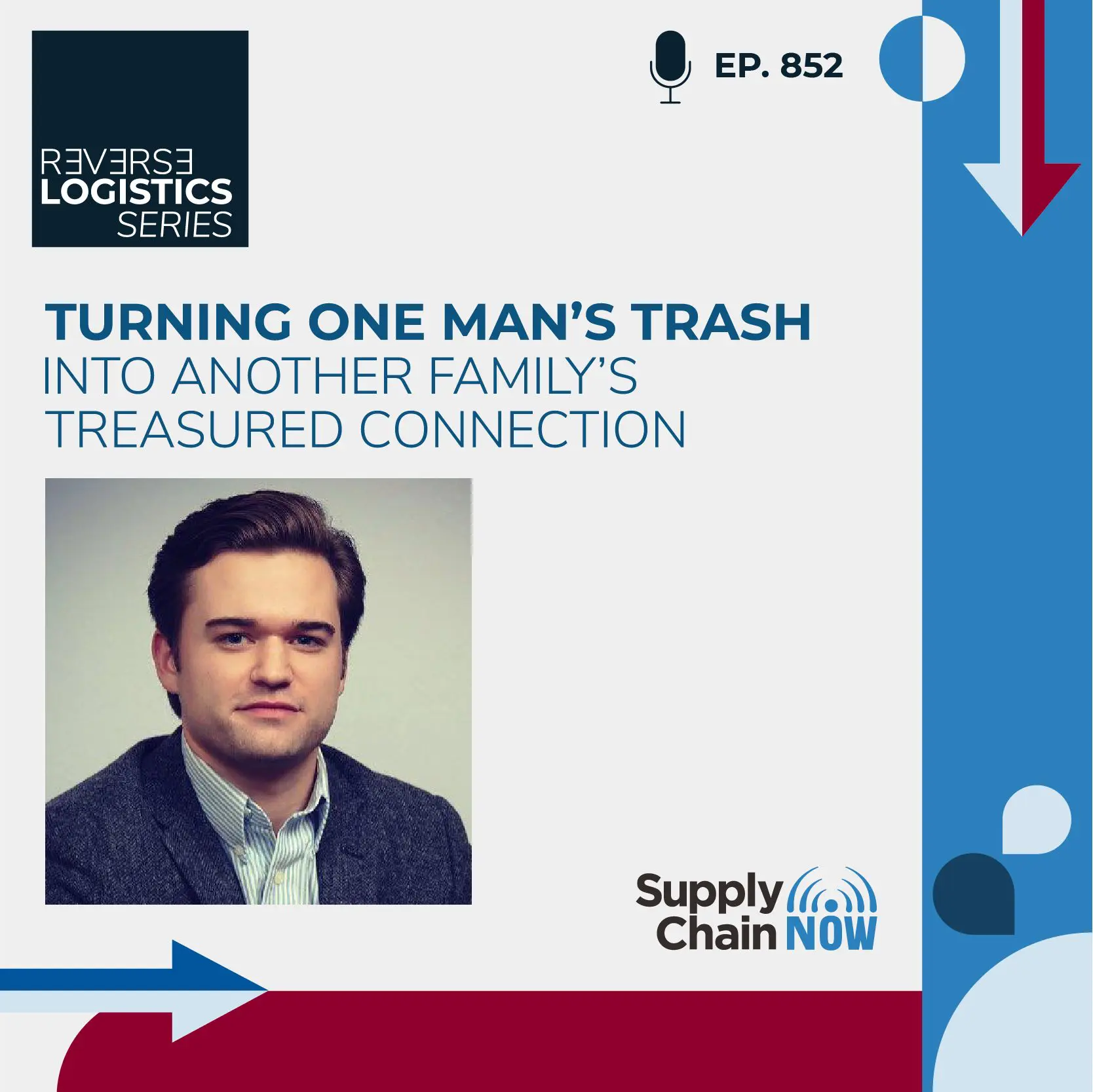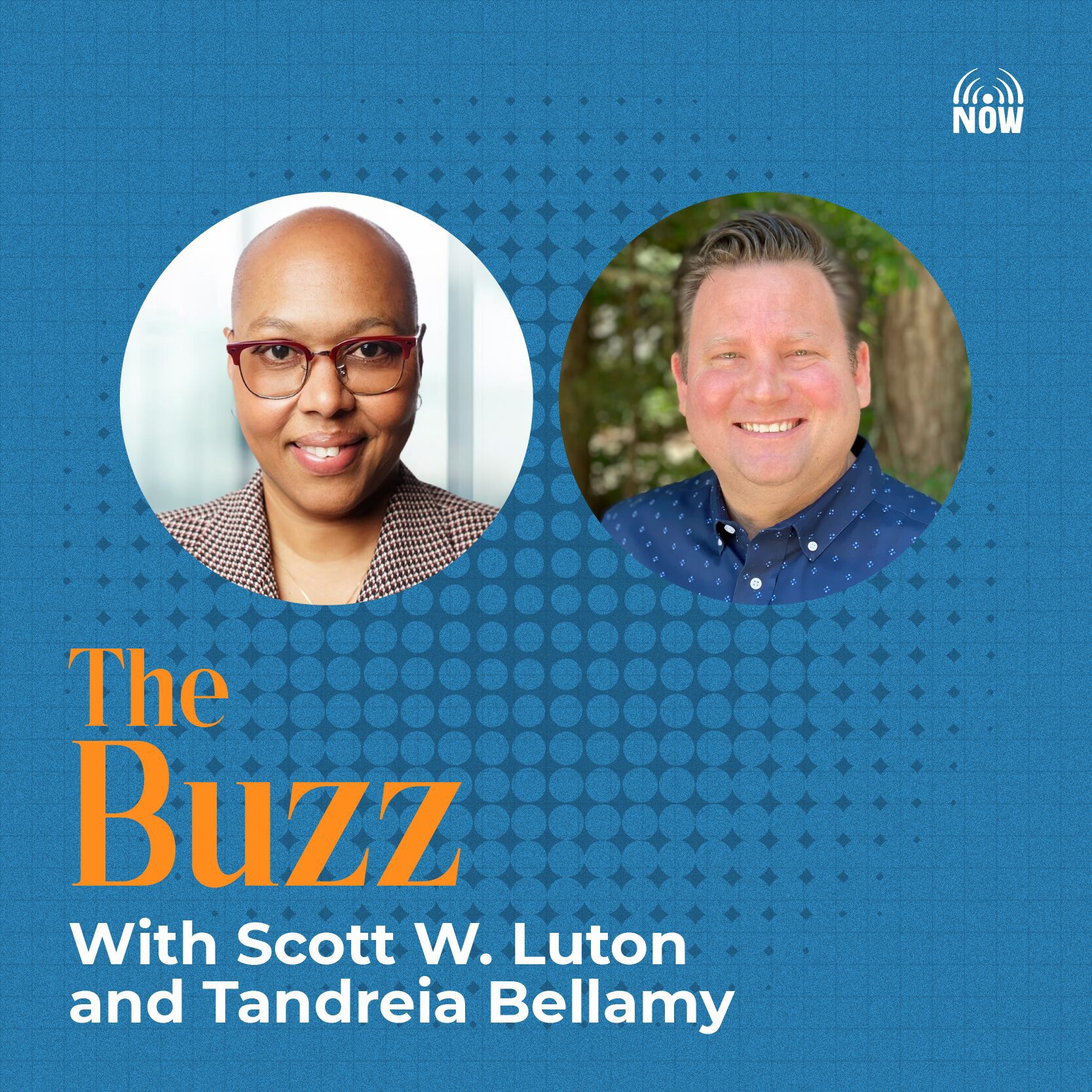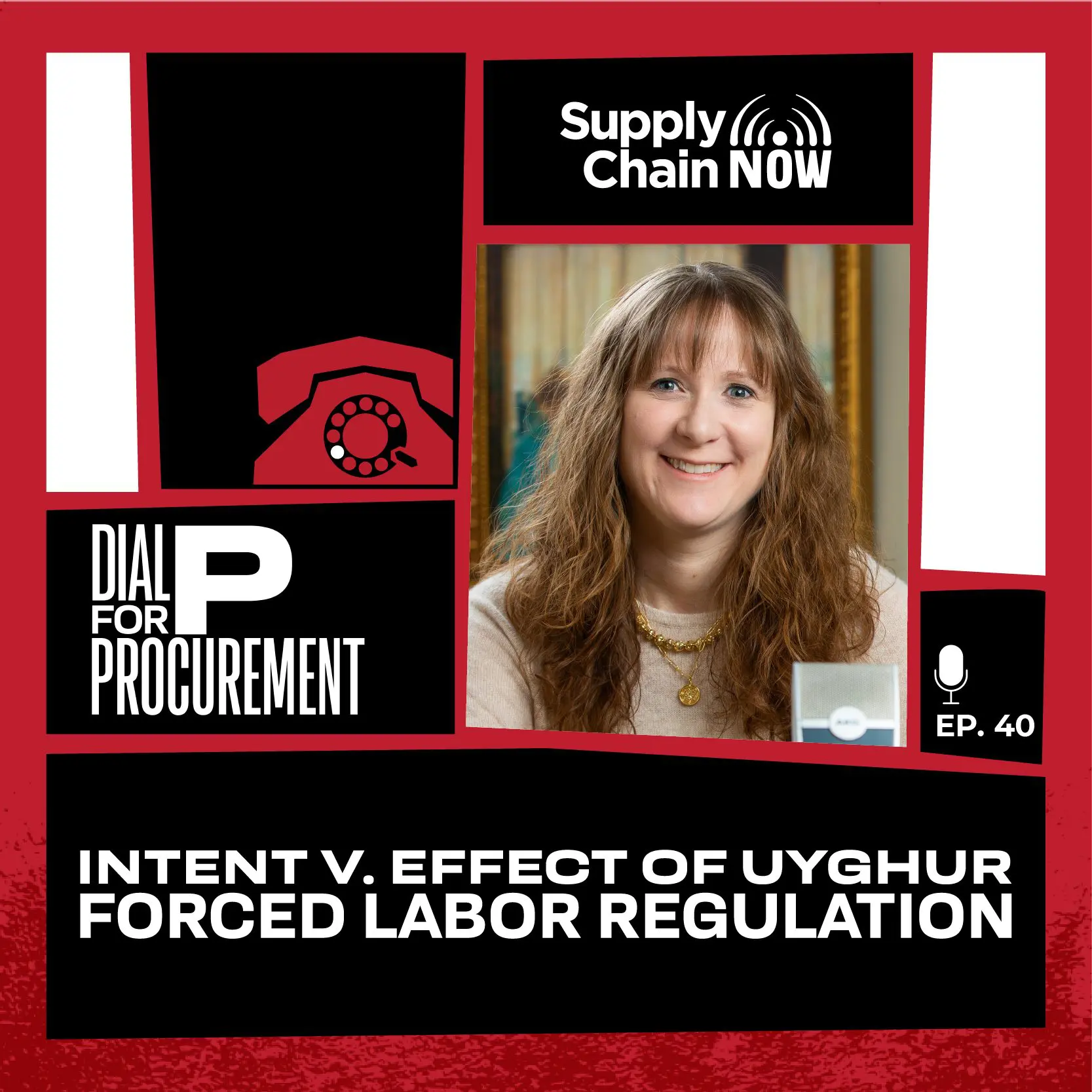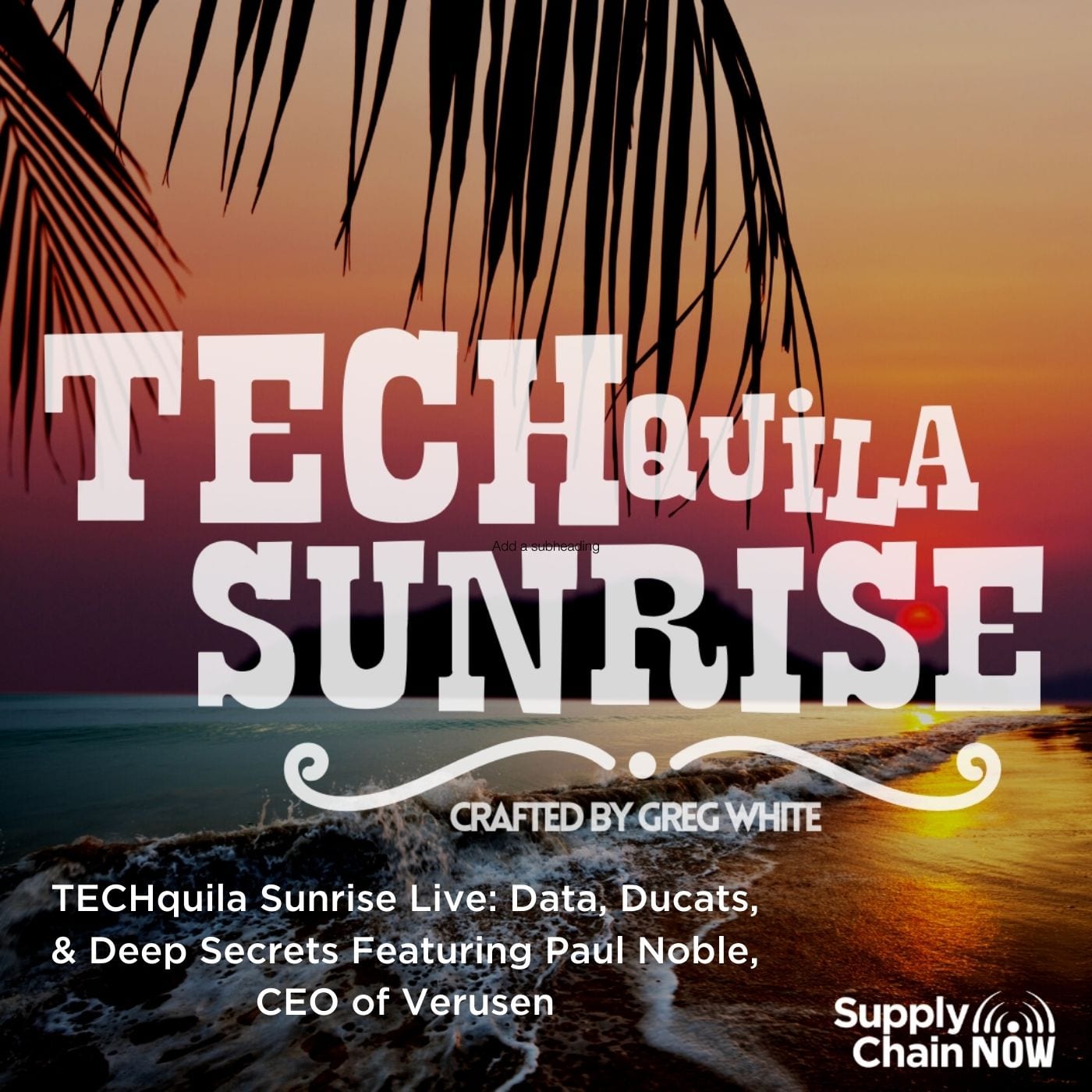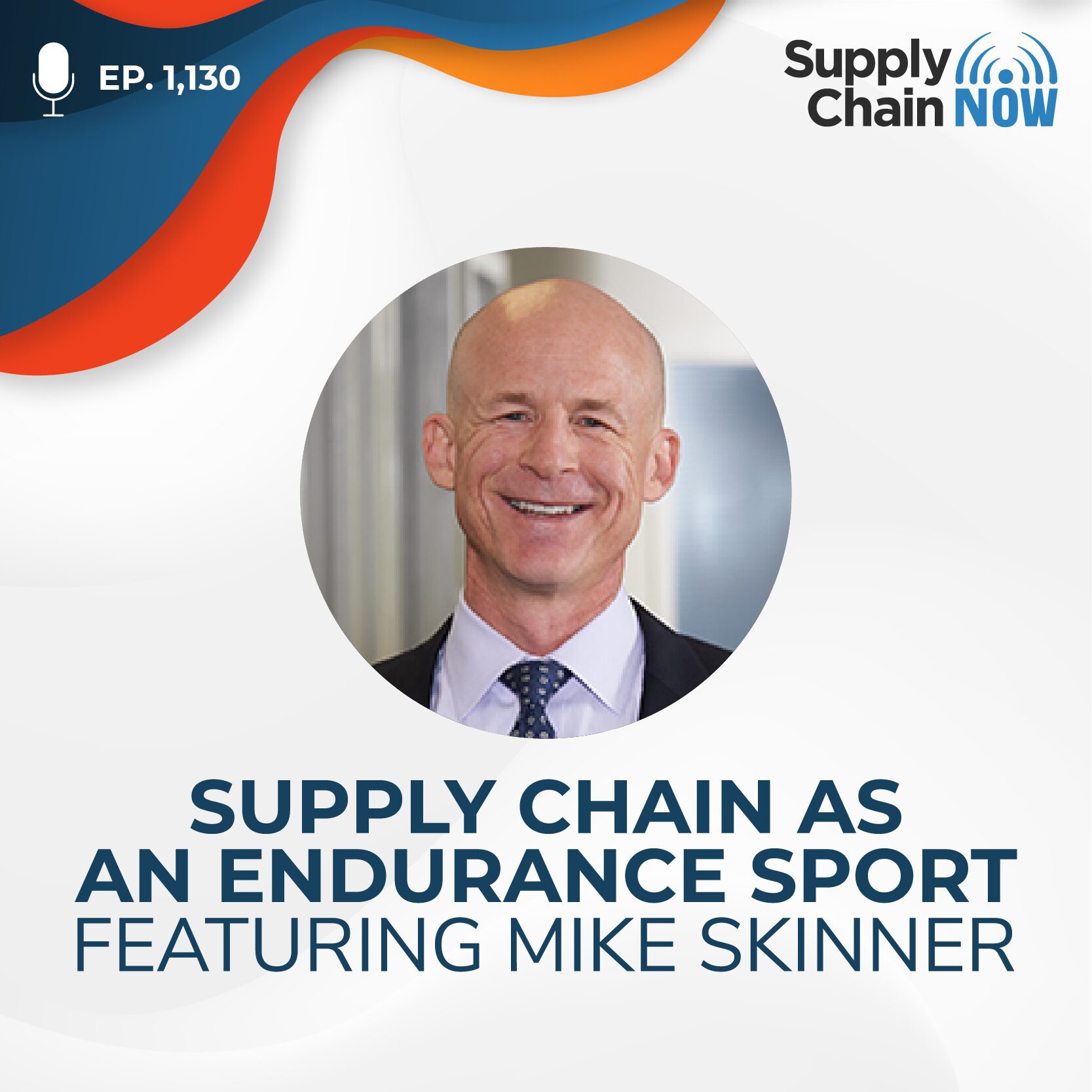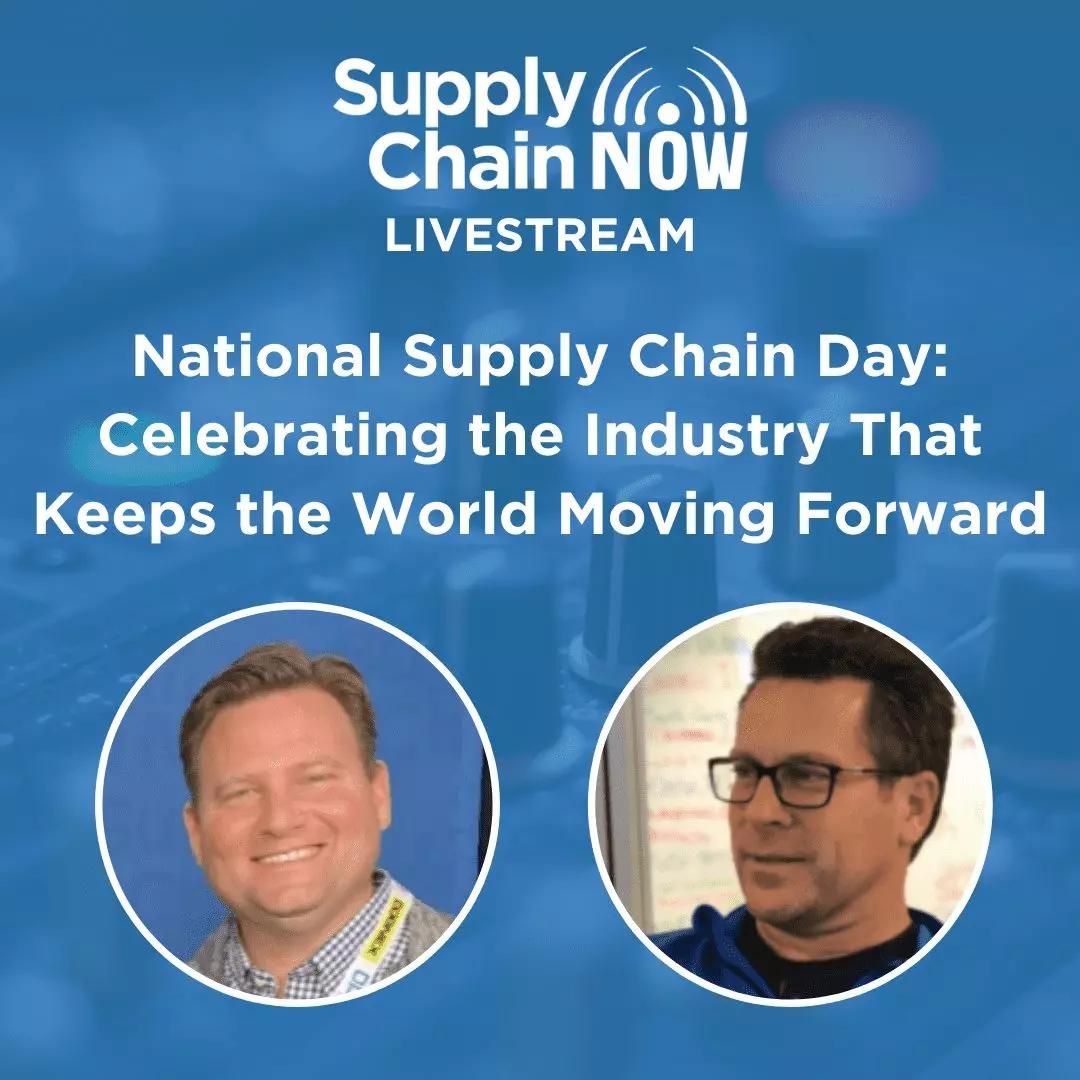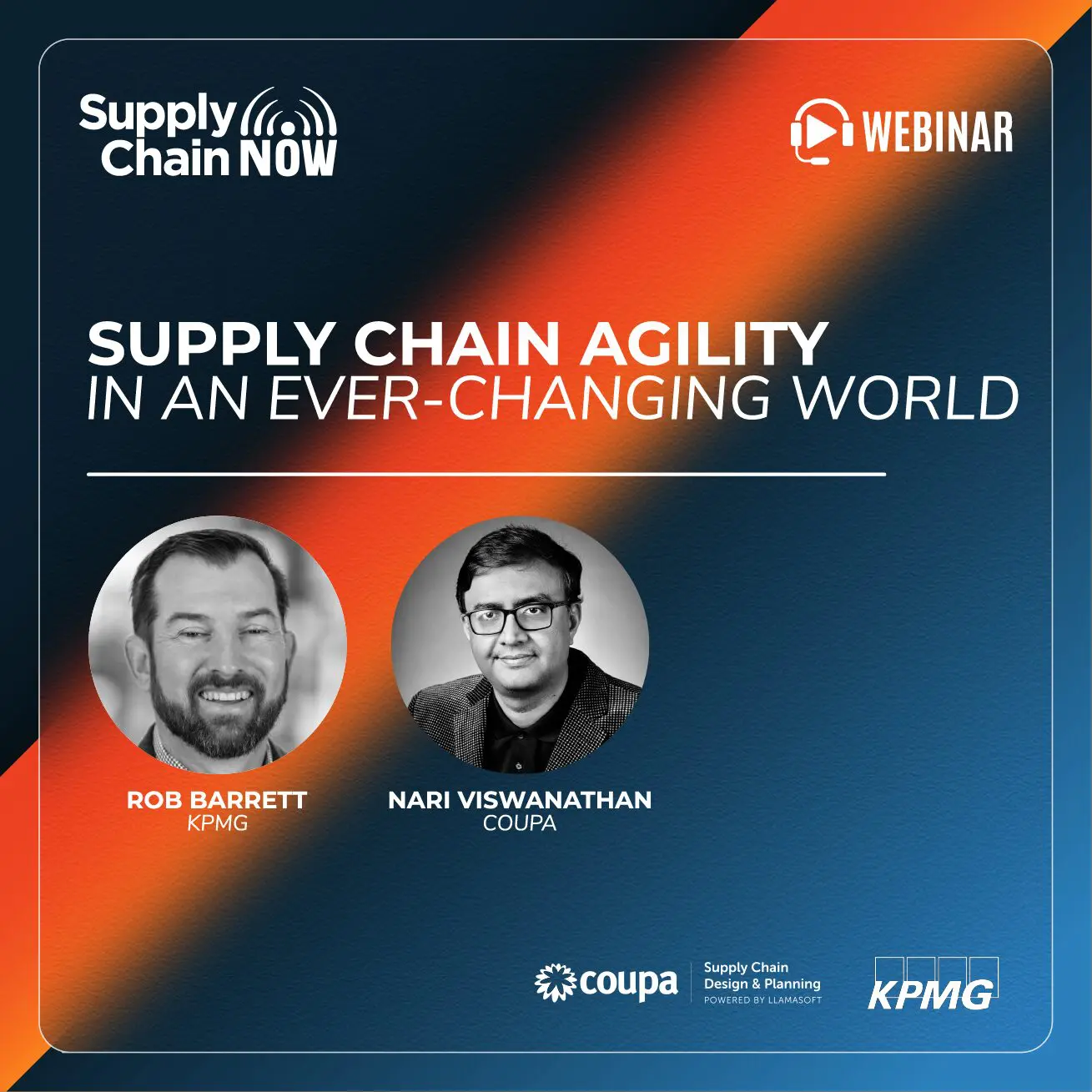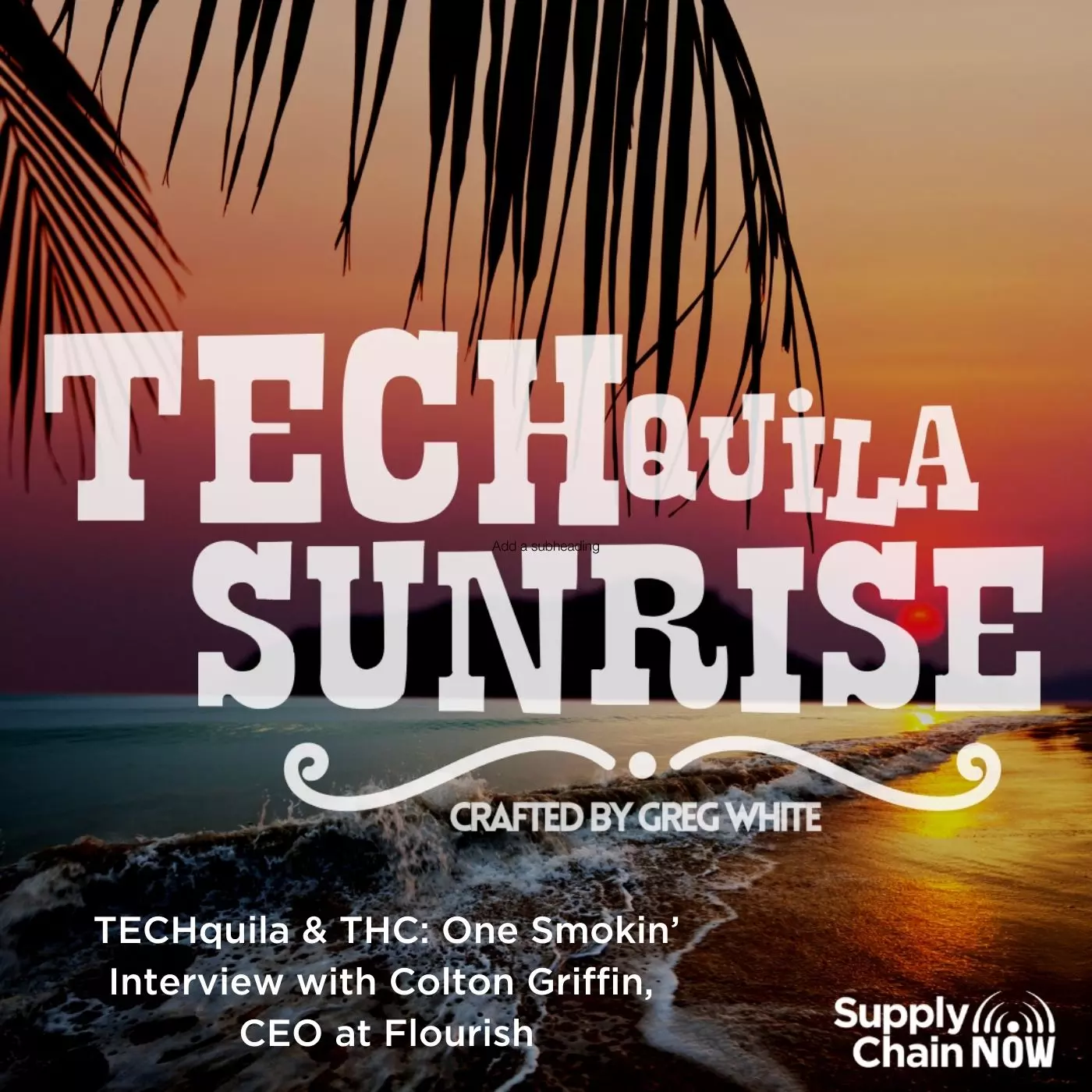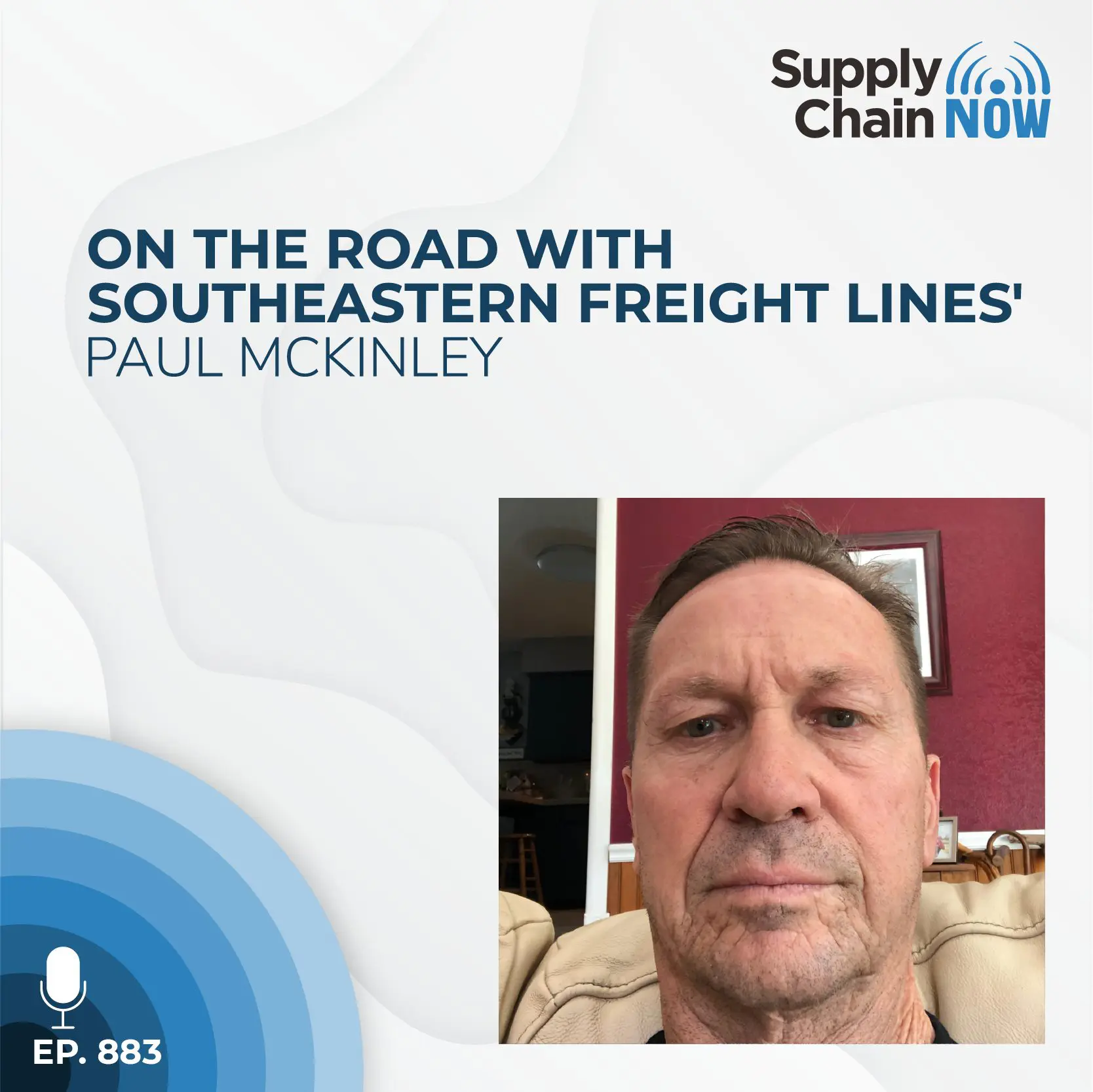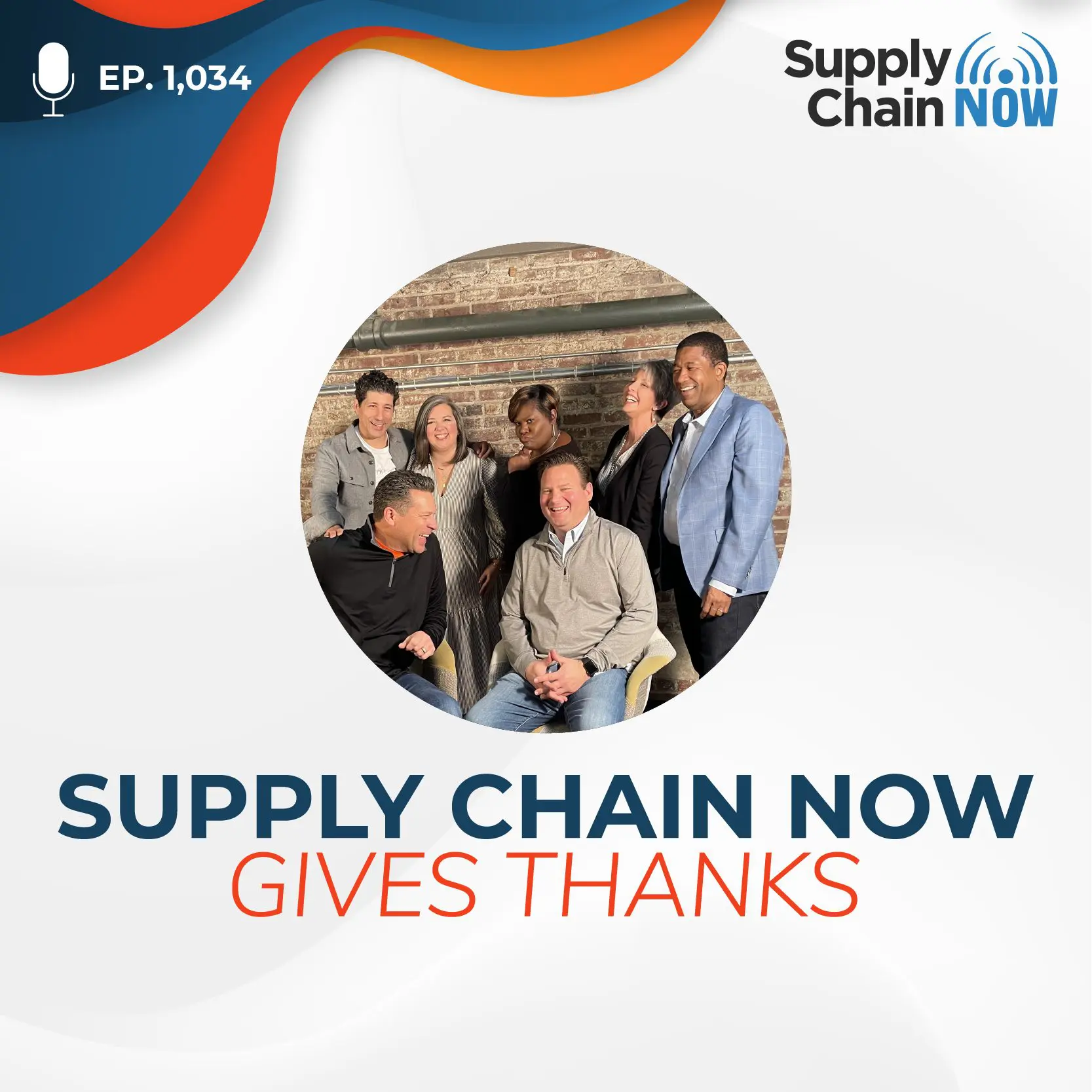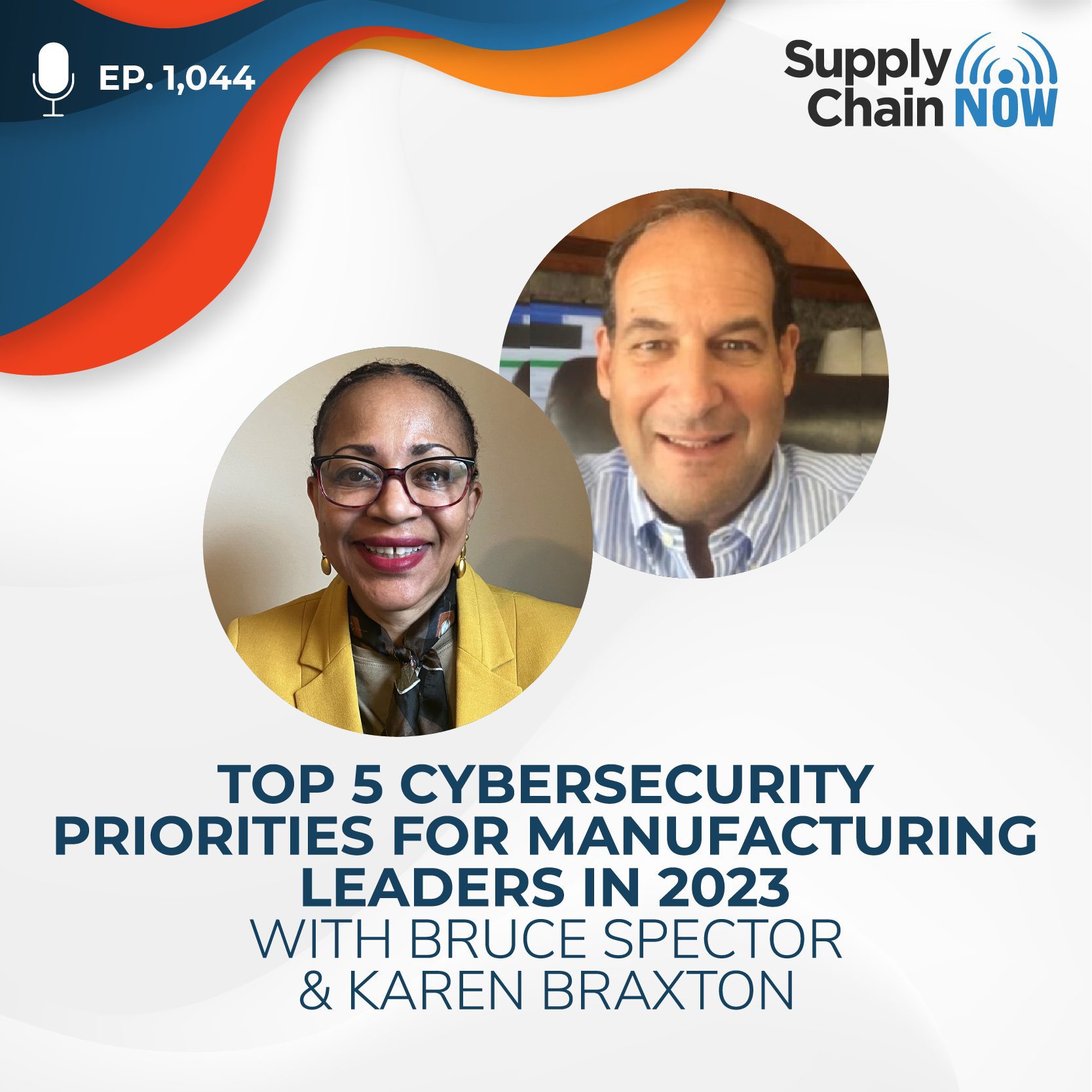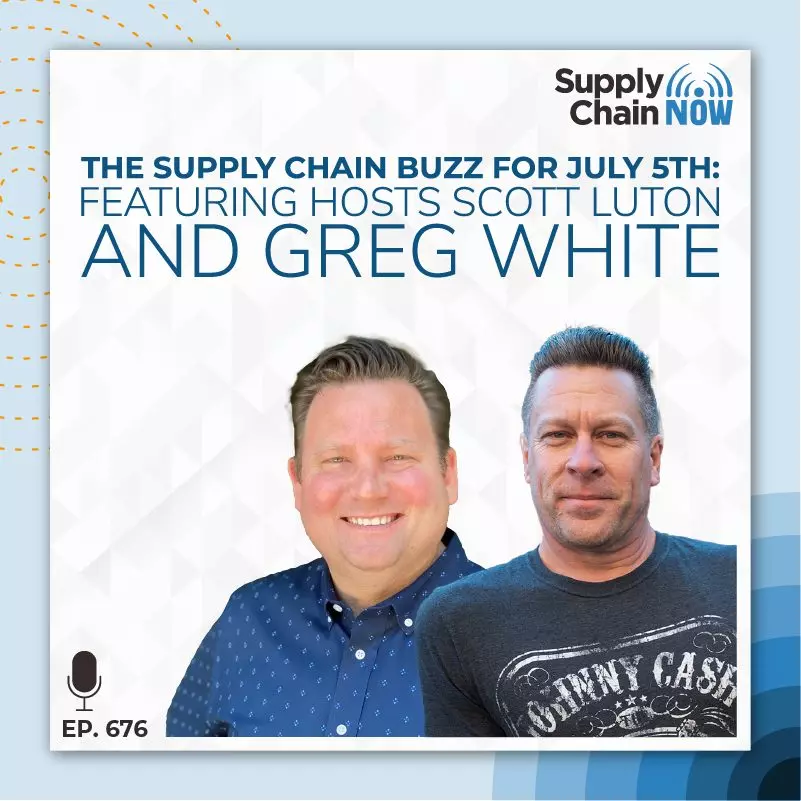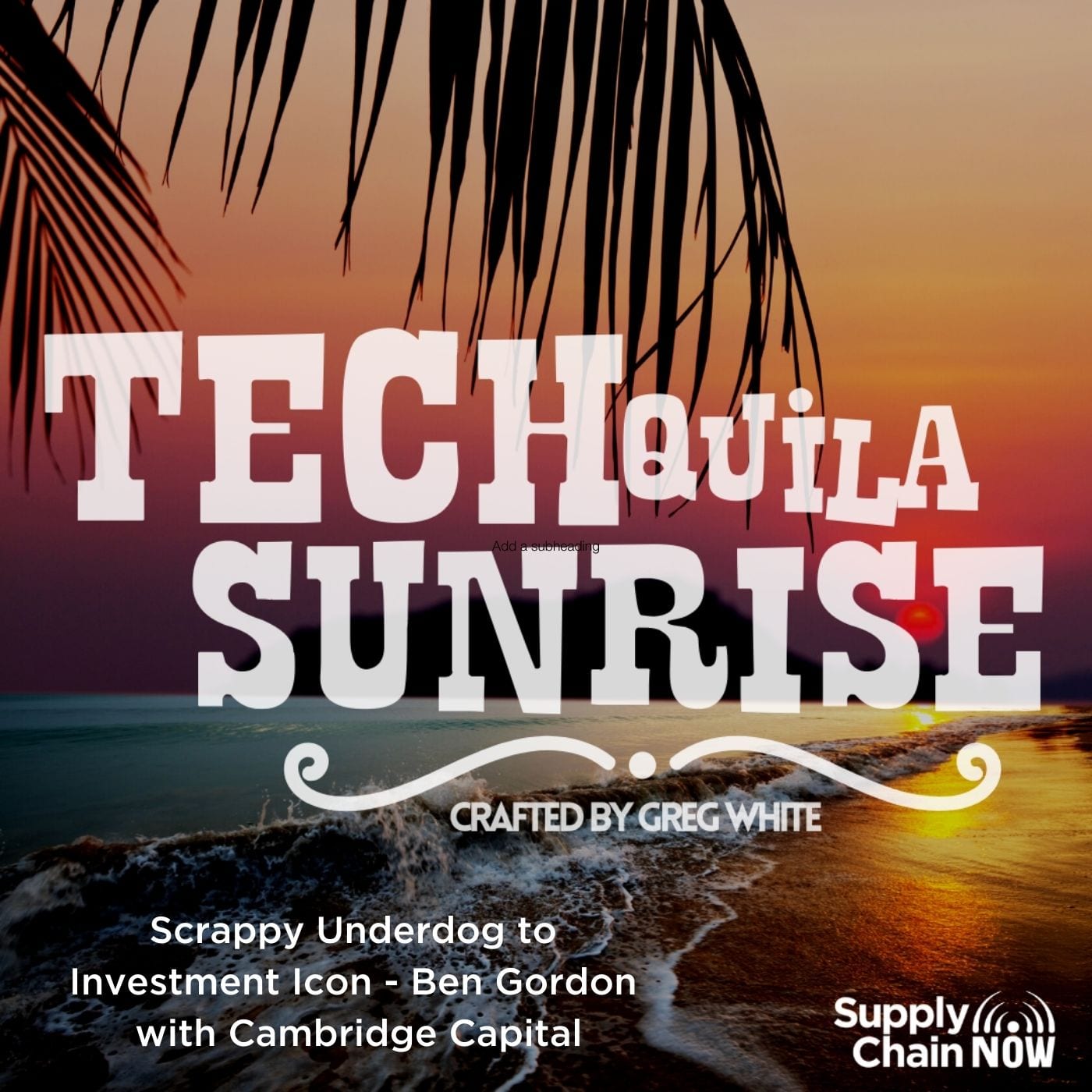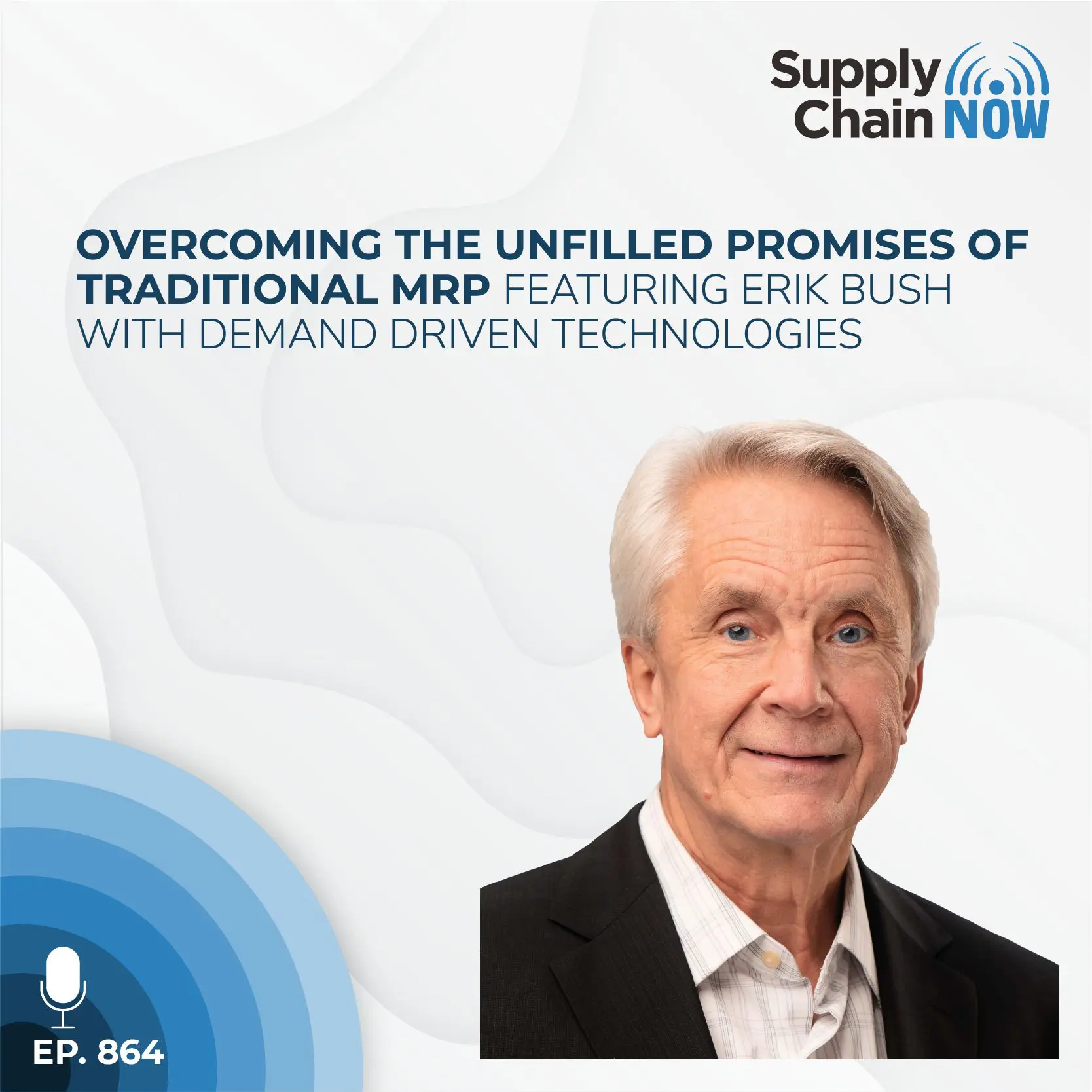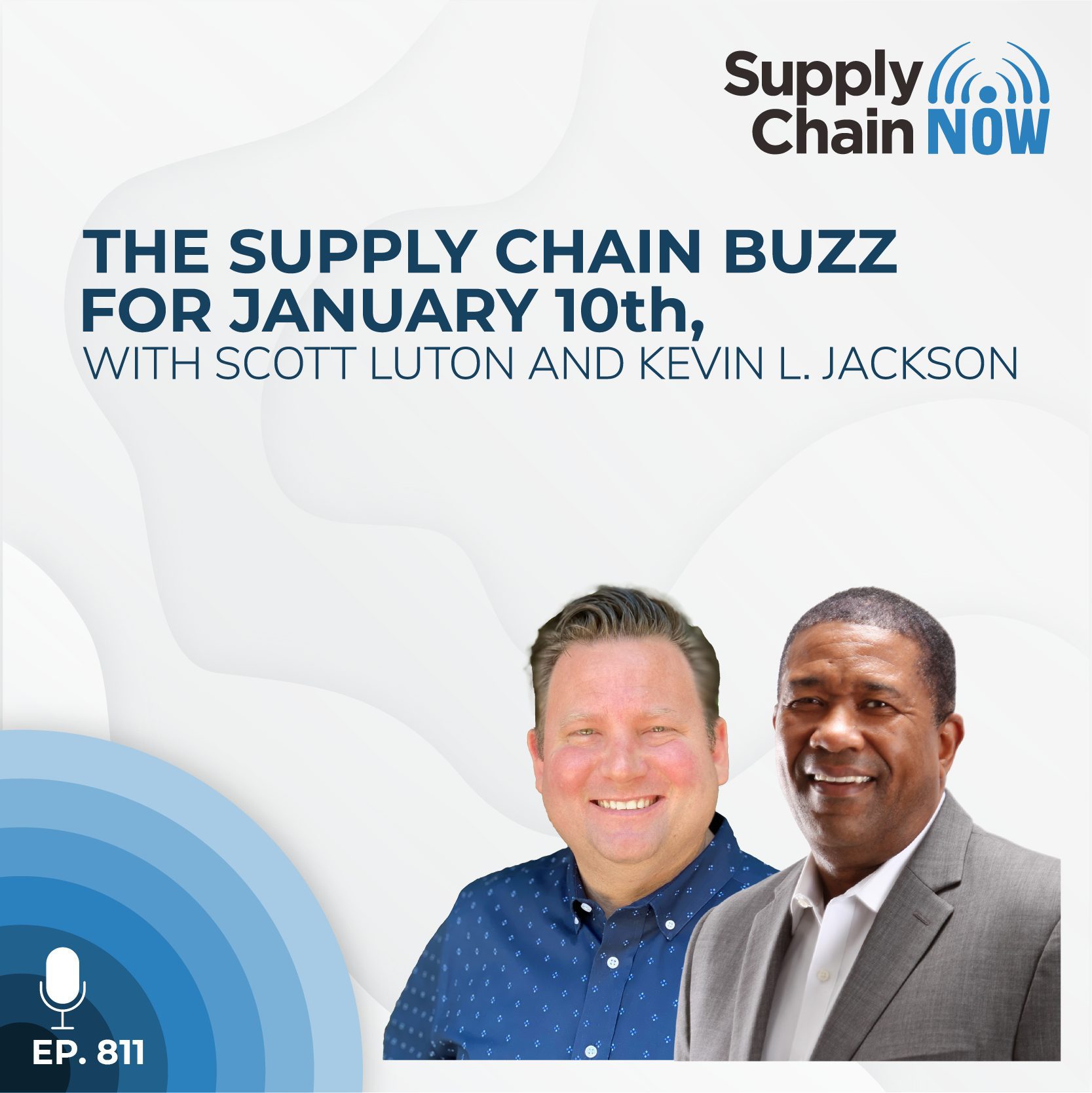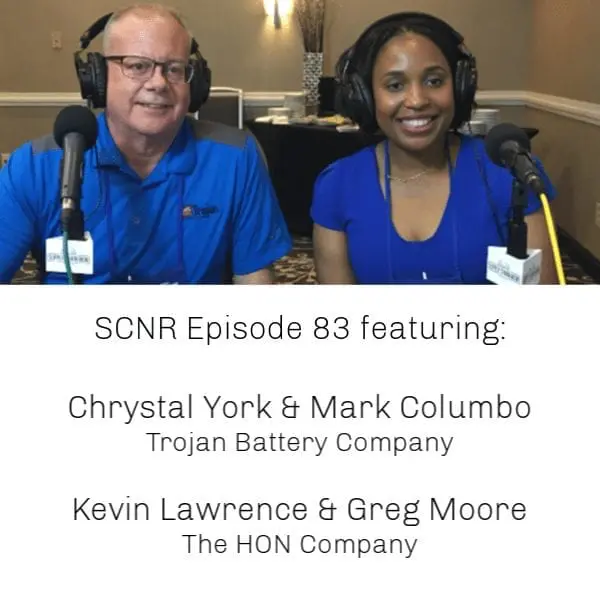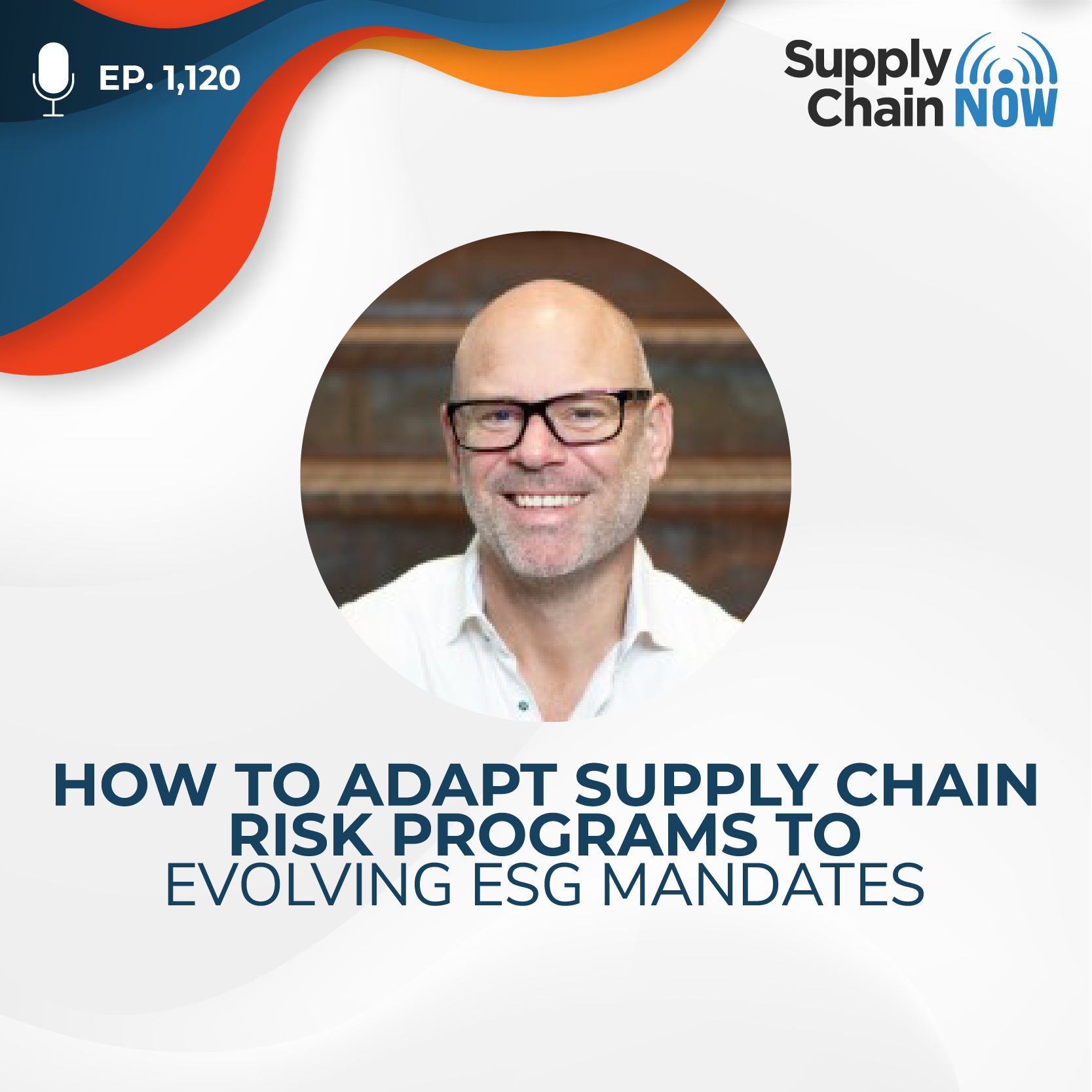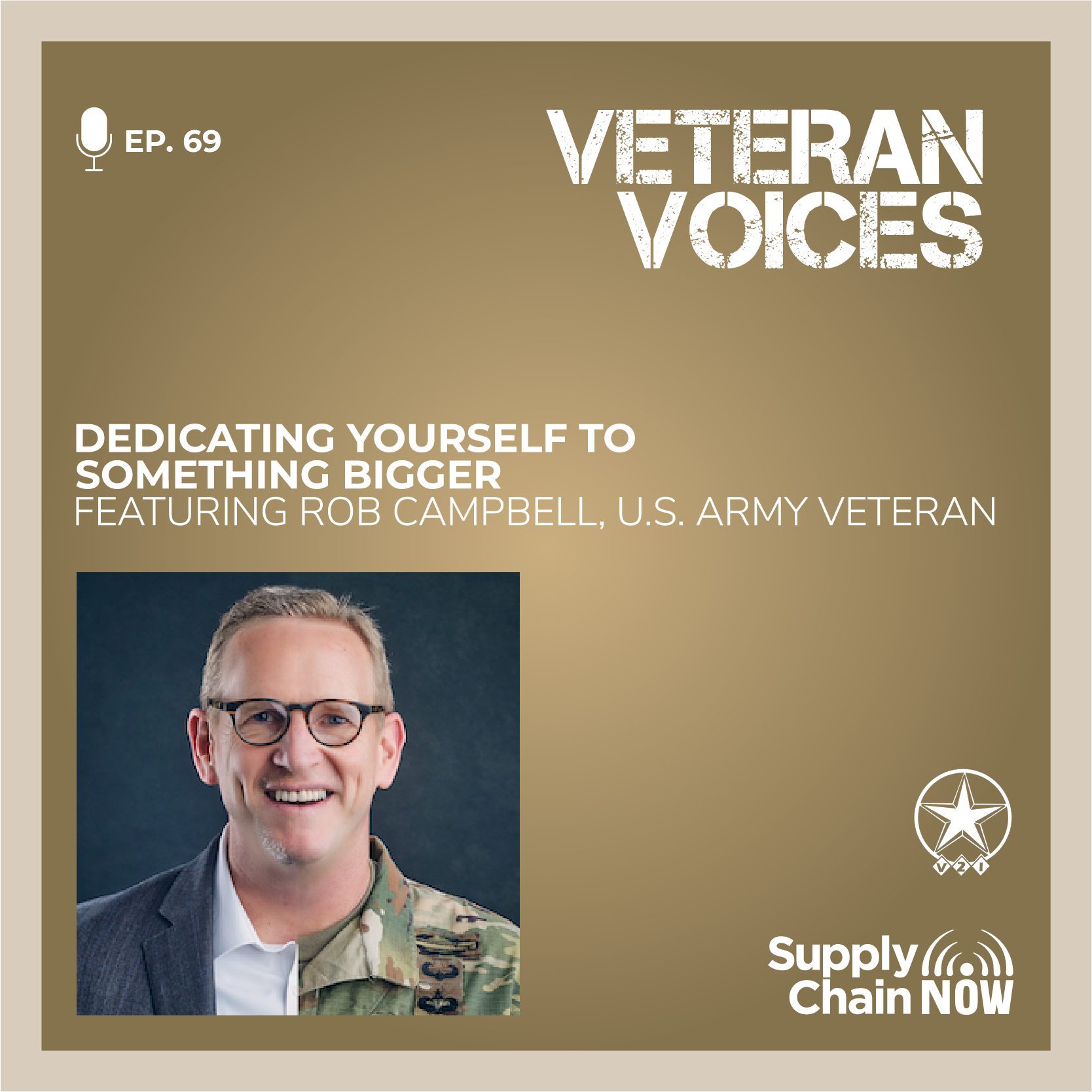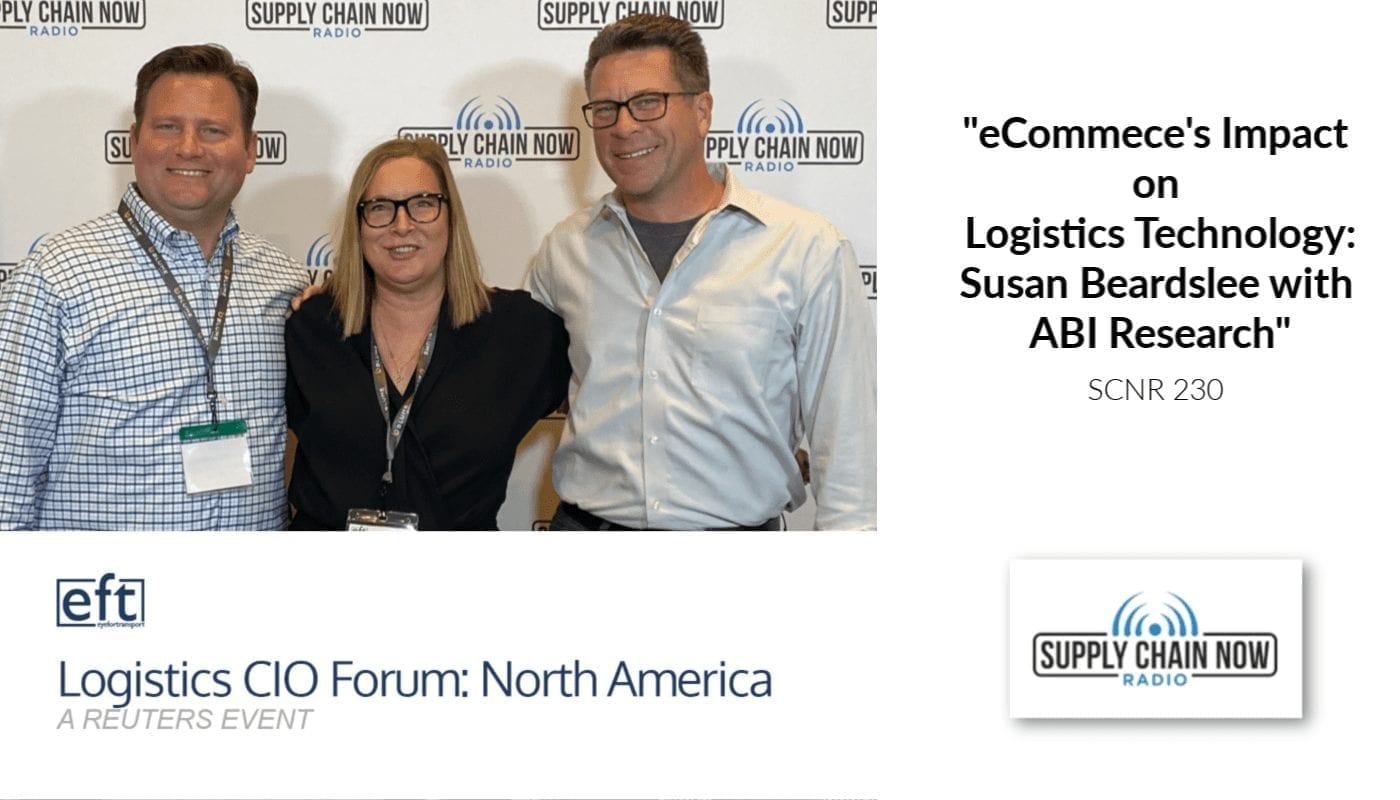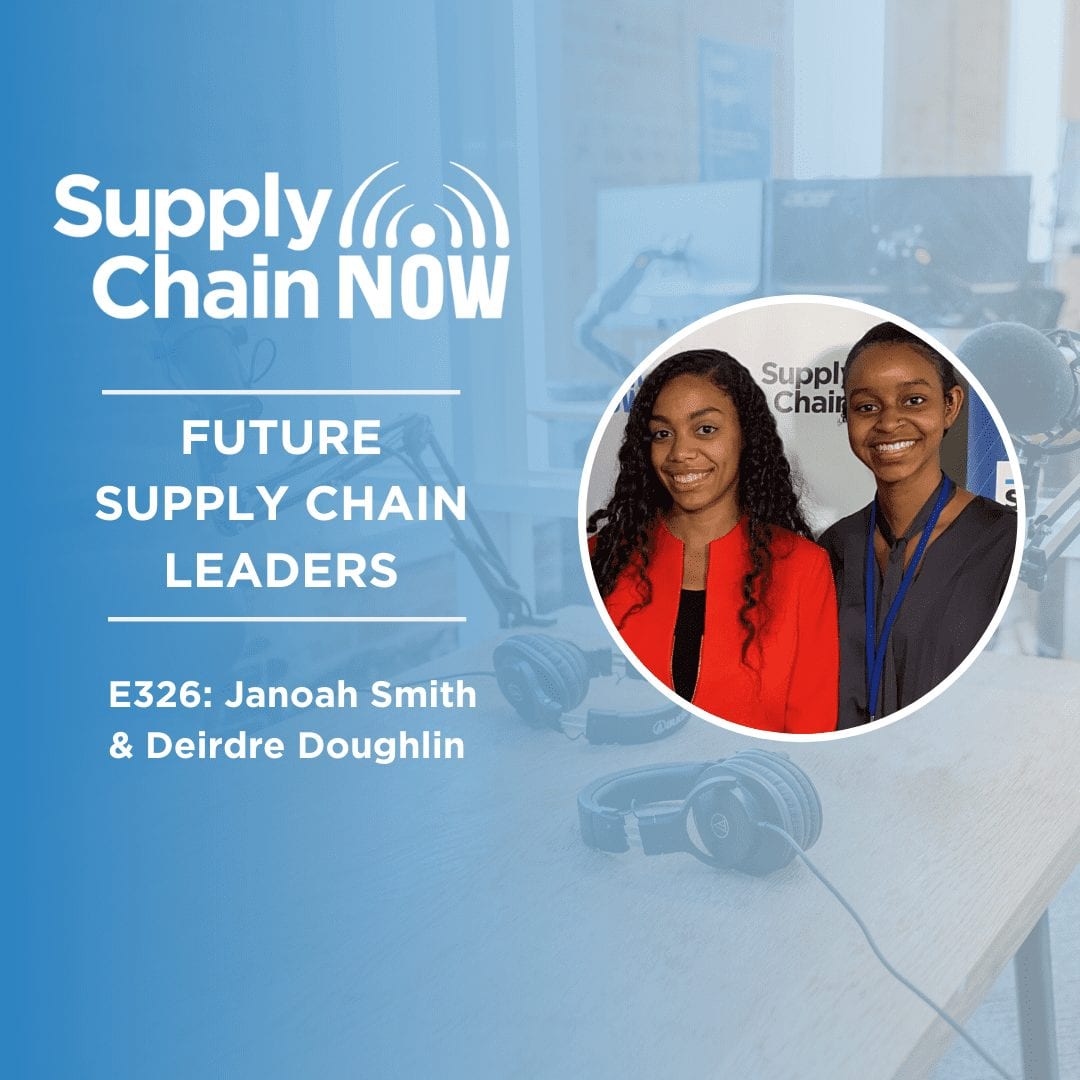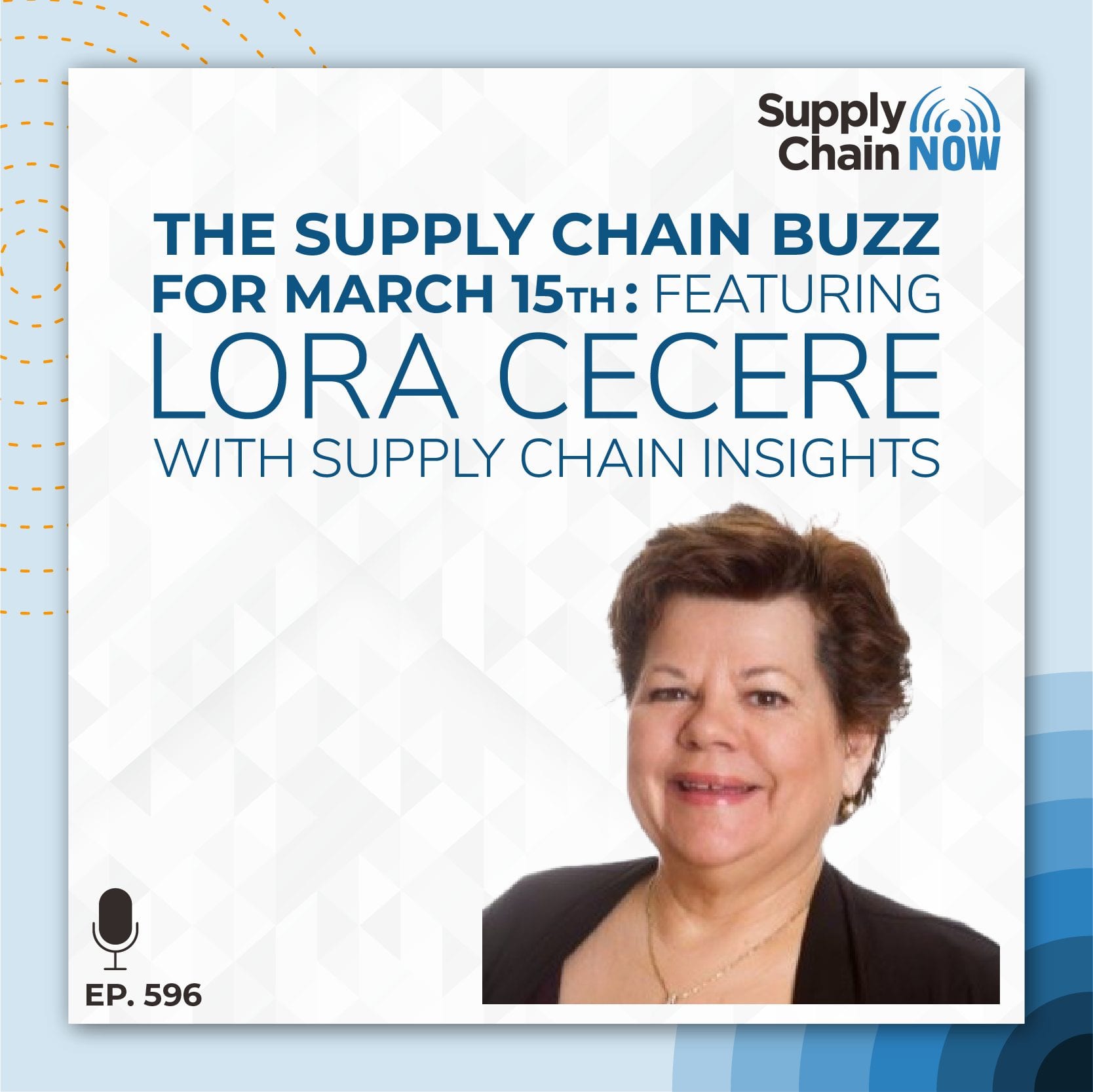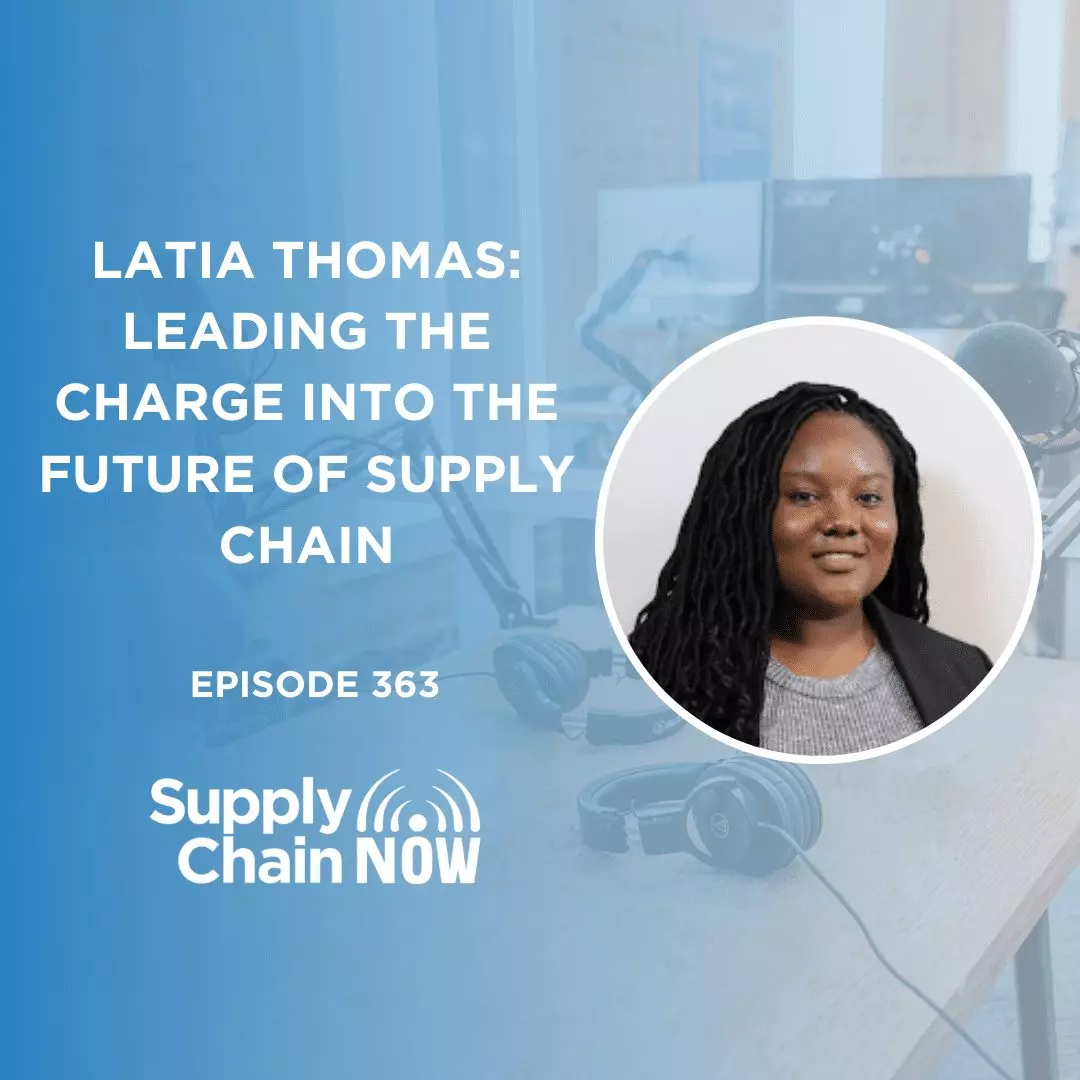Episode Summary
Scott Luton and Greg White welcome Susan Beardslee to SCNR at eft’s Logistics CIO Forum.
Episode Transcript
[00:00:05] It’s time for Supply Chain Now Radio. Broadcasting live from Supply chain capital of the country, Atlanta, Georgia. Supply Chain Now Radio spotlights the best in all things supply chain the people, the technology’s the best practices and the critical issues of the day. And now here are your hosts.
[00:00:29] Hey, everybody. Scott Luton again with you, Liveline Supply Chain Now Radio. Welcome back to the show. On today’s show, we’re not broadcasting Olah from Atlanta, Georgia, the Supply chain City, but rather we’re broadcasting live from Austin, Texas home. A variety of things, but including EAF TS Logistics S.O form. You might hear the some of the buzz in the background here. This this event is also a Reuters event. We’ve been interviewing some of the most innovative thought leaders that are all doing big things across the NDA in Supply chain industry. And we’re gonna continue that with a segment here today. Well, welcome in my fearless and esteemed co-host, Mr. Greg White, a serial supply chain tech entrepreneur, chronic disruptor and trusted advisor Greg. How you doing? Doing great. We this is this is our clean up session. The cleanup hitter. You know, we have had quite a series of interviews from a variety of angles from across the in in Supply chain industry. And I’m excited about this last segment we have.
[00:01:31] I’m pretty excited because we’ve already established that she went to high school with my wife. Mm hmm. What more do we really need to know?
[00:01:38] I think we’ve knocked it out. Thank you. Yeah. Yeah. Sell Arizona. Yeah, that’s right.
[00:01:43] So on that note, let’s welcome in our featured guest for this segment. Miss Suzanne. BEARDSLEY, principal analyst, Freight Transport. She’s a principal analyst of the Freight Transportation and Lu Logistics division of Aybe Our Research. Also m.c chair and presenter here at the Logistics CEO forum. Holy cow, you got like three or four full plates.
[00:02:08] You know what? I like to stay busy. I like to manage a lot of things clearly.
[00:02:12] Well, and I love your passion, the energy. I mean, we’ve been at it for two days here straight. And I’m sure you’ve had some jam packed days, but it’s like you just got here. So you’re right to go for a third day.
[00:02:24] You know what? Don’t do it if you’re not passionate about it. That’s what I say.
[00:02:28] I’m with you. I’m with you. So thanks for carving some time out. I know you’ve been really busy here at this this great event. We’ve really enjoyed our time here. So I’m not I’m not sure how involved you got on the planning side, given your you know, your chair of the event. But, man, this has been a home run.
[00:02:43] Home runs event. I am very excited that now it’s part of Reuters, because I think that just brings such gravitas, if you will. Good work. And it’s really a whole new audience, if you will.
[00:02:59] Agree does. And I think I mean, we’ve already talked about earlier today that this you know, there are a lot of conferences like this and this is one of the top ones. I think he if he does a fantastic job and they will only do better with Reuters backing.
[00:03:13] Yeah, I agree. This is my second event with the F.T. this year, and it was compelling enough, including with some of the really interesting unicorn’s, if you will, startups that I met last time, including keep trucking, an Uber freight, uber freight who is now having a focus in Chicago, my original hometown. So lots, lots of really good. And we’ve had Google here today, DHL, FedEx, we had U.P.S. yesterday. So really, they bring the heavy hitters.
[00:03:45] Yeah, absolutely. So speaking of heavy hitters, let’s talk about the heavy hitter we’re interviewing here today. So, Susan, before we dove in and gain your insights and learn more about your firm and really talk about the impact that the huge e-commerce world is having on technology, let’s get you a better. Sure. So tell us about where you grew up and tell us about kind of your journey from before you joined the FBI sting.
[00:04:10] Absolutely. So I grew up originally in the suburbs outside of Chicago. I have loved trucking and commercial vehicles since I was very little back. Goenka trucks. We talked about how, yes, I won a contest from a cereal company and one this is when they still made metal talk to try not to plastic stuff you see today. I still have them today. I have a beat-up RV that my kids used to ride round when they were really little. I read the Richard Scarey books and my grandfather. He was a volunteer firefighter, so I got to see the big fire truck. So I just always had an interest in a fascination and quirky things like that growing up. Then we moved out to the valley. The Sun, Phenix, Arizona. Like most people in Chicago. Yes. Chock full of great Italian hands. Yeah, he has. And in fact, a lot of those restaurants are now coming over from Chicago. Right. So we had the the nose and Illuminati and all all of that. Sounds good, in fact. Yeah, hamburgers. Now, just. You name it. But yeah. So I moved in the Phenix area where I went to McLintock High School and I graduated from Arizona State. Always had, like I said, interest in kind of the Industrial dynamic of things, but also writing. So I worked on the yearbook and the school newspaper things. Things like that. So I think having that balance of the creative and the analytical has kind of been that along with OP ex have been in my DNA since I was fairly young. And so I got a degree from Arizona State and Supply chain. Yeah, they have a really highly respect. Yes. Change program. Arizona State and Michigan State have the top two. And ironically, I married a supply chain guy from Michigan State that I met. Start your own school. I don’t know if my children have any interest in Supply chain, but to be perfectly honest. But yes. So. So, yes, we have a deep, deep bench of supply chain at our house.
[00:06:21] You know, if you were to get a degree from BEARDSLEY University, it sounds very distinguished us sound. It sounds like it ought to be anything. I believe there is a Biersack castle in England. So. I don’t claim to it, but it’s in the stars. Yes.
[00:06:35] All right. So and then let’s talk professionally. So I love hearing where your passions, you know, since you’re really young and how those have intersected to really foreshadow where you’ve spent at least a good portion of your career before do before being a part of a bizarre team would. What else would you do? An injury?
[00:06:53] Certainly, I’ll give you like the the fast pass. You will. So I don’t Arizona State. I went to work for Motorola, which was a huge employer in Arizona time, like 18000 people even larger than Intel is today. If that were some of the optics. Yeah, absolutely. I started in the factory doing and then in the back end doing Industrial engineering type of work, which brought me to Asia many times over the quarter or once a quarter, I should say, at least of transition things from engineering to production. So Motorola and now it’s been off on some I where I went after that actually do I think 30, 30 plus percent of their business in automotive and in vehicle support power systems and things of that nature. So that started some of the bread crumbs, if you will. And then I started an offshoot of a group of I.T. in CRM solutions that transitioned me where I ran all of I.T. support services at on SMI. And in fact, one of my former bosses and mentors is now the CIO of DHL. So, yes, David Thornwell. So a lot of consistent thread there. So from there I went to Fujifilm, which has a lot of different subsidiaries.
[00:08:14] And I joined it a very difficult time for our nation. I joined actually on September 11th, 2001, and I oversaw all of our hazardous chemical customer relationships with semiconductors. And so you can imagine from a Logistics perspective now of moving products. On top of that, we had a Long Beach strike where things were literally couldn’t move off the ports. So I had a lot of on the ground training, so to speak, of the importance of transportation and logistics across the supply chain. Right. In specific verticals. So I did that. I moved on to Intel for a decade. Intel I started manufacturing, but I moved on to a lot of deeply embedded technologies, including gateways, which can measure things for supply chain and look at the driver, the cargo and the vehicle if we talk about predictive analytics and things like that. And so and then I helped move the eight asked team from an incubator into a business unit. What team? The advanced driver assist or a task team? So I manage our operations, finance, hiring, a lot of things of that nature. Wow. So that’s where I was before I came to API about four years ago.
[00:09:36] There’s so much we got to add a second house because I want to dove into a lot of shared there. But if I could between her and lunch. Yes, that’s right. That’s right. So we’ll stick to the original plant. But Suzanne service getting Assad. You know, we have a series called Full Access Series where we interview a wide variety of women in leadership roles, one of them in Supply chain and manufacturing. And you know, we’ve been part of efforts lean in circles in Atlanta, which is one of them is run by Shumi 50, which is a great organization that’s dedicated to its nonprofit, to helping all folks from and from all walks of life enter an industry and succeed.
[00:10:17] All right, leadership. So given your background, how can any does it any couple things come to mind when we think about how we want to not just get more women into Supply chain, but much probably more important and importantly, arguably is making sure they’re successful? What comes to mind and clearly with a with a career like yours, what would what would be helpful to share with others?
[00:10:41] I’m a huge advocate of mentoring, and that’s something I took a lot of joy in at Intel for multiple years where we had what they call r-s.d or recent college grads. And I gravitated towards these young females to really help provide visibility, to advocate for them to upper management. And these are all very talented young women, a lot of them with engineering and computer science backgrounds. And so that’s something I think you don’t just drop somebody off into the deep end. And I think that’s tremendously helpful. I think continuing education, continued learning, not just even formal education, going to events like this, being well read, having discussions, getting involved in groups. I’ve been involved in groups with both women and tech, as well as there’s another group that focuses on bringing women in to the boardroom. Right. Which is a whole nother element of influence. Somebody that really inspired me yesterday was Kathleen and I forget her last name. She’s the vise president of marketing at u._p._s. And she talked about everything from women’s reentry programs to under represented populations and really how to not only recruit, but, as you said, to to really retain them. And I think a lot of that is finding where are their passions and how do you match those passions with opportunities and continue to leverage your skills, but continue to push them in a very positive manner into continuing to stretch their capabilities and avoid complacency, but also make sure they have the maturity before they go out. And coaching is a big part of that as well.
[00:12:31] I love that. Thank you for sharing. And Malcolm, Tushar, this note. Kathleen Moran, that sounds about right. BP, a U.S. marking the U.P.S. plane. She spoke here at the tremendous in a panel.
[00:12:43] I I would love to speak to her again.
[00:12:45] Outstanding. OK. Greg, anything the way in there? That’s pretty heavy, heavy hit and subject that we’re passionate about.
[00:12:52] I think that it’s good. I am particularly passionate about our full access series because I have three daughters. So so. And, you know, honestly, I’ve I’ve always worked in in companies where I felt like I felt like there wasn’t as big a delta between the guys and the ladies as as you see in so many industries. But having gotten out of the companies where we’ve been very conscious about that and and seen the broader marketplace, I I definitely see the need for all of this sort of thing. And look, anything that gets that gets more diverse mines into the into the supply chain practice is valuable. Yeah. I’m going to do it again. I am a fan of a guy named Danny Longa, who is one of the A.I. gurus, real AI gurus. He’s done it at Google and Amazon and now has a company that that creates A.I. for gaming systems where it’s most often used. And one of the things that he says is you don’t need better algorithms. You need more algorithms. Essentially, the you know, the metaphor is if you want great ideas, you want more diverse minds pointed at the problem, not one mind trying really hard to figure out the problem. Right. Absolutely. I think it applies. You know, obviously, it applies in A.I. and I think it applies to any kind of problem. Universal. Yeah, universal.
[00:14:18] Absolutely. I agree with that. That having the really diverse backgrounds and ideas really makes for better decision making and better problem-solving.
[00:14:31] Yeah, better growth, better innovation. And it’s it’s proven you would talk about you look at a variety variety of studies. I think McKinsey puts a study out every couple of years and their findings backed up by plenty of research and data. Is that more diverse leadership team’s bottom line? Or can have stronger margins. And I think it speaks to a lot of the the the advantages you gain that both of you all just mentioned when it comes to, you know, figuring out. To grow an organization and overcome the barriers that that present themselves. OK, so shifting from a heavy hitting topic like that. We’re going to dove right into maybe. OK, so I’m curious. I’m not a I wish I knew a lot more about the research industry because I think it’s probably more important and more relevant today, especially at the at the pace that decisions have to be made and that than ever before. So tell us more about Abia.
[00:15:26] Absolutely. So we’ve been around since 1990 out of New York, but we have a global presence across North America, Europe, different parts of Asia. And so I think some of our strength really is looking ahead 18 months to five years on really leading edge research on what our actionable insights are. Our clients really crave something that’s very specific to their vertical, their geography and then providing strategic guidance. So whether that’s meeting with a board of directors or a particular team, data scientists, marketing departments, et cetera, and really help them understand and this goes back to some of the nascent technologies, really things that are transformative in their particular industry and how to reshape them, including workforce, which we’re talking a bit about today. So obviously, I have a very specific coverage area, but I have peers around the world that I work very closely with, whether that’s in mobility. They’re going back to women again. I have a brilliant coworker in France with p_h_d_ in cybersecurity and she’s Kaila. It’s a rock star. I just want to go on the record. McKayla is a rock star, if you’re listening, McKayla. So we were we’ve worked together on on Supply chain efforts. We have people that focus on communications like 4G, 5G, Bluetooth, etc, etc. So we have a very strong bench. And I think what we provide is very deep, analytical and very specific. We develop a very specific put a line in the sand, a number for a forecast. But we also do the qualitative work, top trends. I look at things, whether that be patents. Venture capital investments. I have clients say, oh, so-and-so got acquired. Who who do you think is next? And so we talk about things like consolidation or who are the hot startups where maybe I should consider making an investment run.
[00:17:34] All of that. Right. And what I love also in getting no youth prep calls we had in the warm up here today is you’ve been there, done that, you’re leading the research for the freight transportation Logistics, but you’re not Acadiana through all the academic approaches there, but you’ve been there and done it. And so I bet that gives you such a leg up as you’re trying to understand these trends and then share that information with with leaders. Right.
[00:18:02] I’m an extremely hands on visual learner. I am if somebody comes to my house to make a delivery, I want to know what kind of telematics they have. I want to I’ve gone into clients and crawled in the back of their trucks to see if they’re cold. Chain solution like a thermo king is connected to their telematics. I will look under a truck to see if there’s guards or what else is going on. So that was very helpful. For example, when I went to North American Commercial Vehicle Show in Atlanta last week span. So by having that and then talking to lots of smart people, whether it’s academics across industries, across geographies, really, I think what I do is take that comprehensive information and I’m able to really cultivate that and provide a specific point of view and direction from my clients.
[00:18:56] Okay. So two quick tips. Yes, it’s just to and you may hear not just the universe stored in Verusen. Both have been and Greg knows Bedminster words better not do, but stored has got into very highly interesting warehousing on demand model. And I believe there coast-to-coast and then Verusen. It’s all about using data on ways and to tackle inventory challenges and it plays nice with all a lot of the big platforms out there. So keep those two. Yes. Startups on your radar.
[00:19:32] Yeah, I will. They are. I mean they’re doing things. Look, part of. We talk about this. This is a theme that I’m sure you’ve heard it at this show. There are all these gaps with data right. Where we go back to paper or whatever. Right. Verusen is trying to solve that problem where you can reconcile they can reconcile the data and they’re actually using actual A.I.. I’m a little bit of an A.I. doubter. I believe I. Even a guy I just don’t believe there are many who are actually using guy, there aren’t as many using it as art saying what I’m saying.
[00:20:05] I agree. And I think there are certain aspects like machine learning. And even within that, you can obviously keep going down click by click and find where where things are are real versus PowerPoint.
[00:20:21] This is real. And we’ve been fortunate to interview both leaders of these organizations on the show. And then, of course, we’re partial that they call Atlanta home. But keep them on your radar. Hi, Will. What made that connection down road? Love it. OK. So let’s talk more about your role at Abia. And here at the forum. So where do you spend your time? I mean. I won’t let you answer the question. I’ve got some hunches, but.
[00:20:48] Well, lately it’s been a lot of travel, huh? And I think that seems to be especially this point here. But no, across North America and Europe in particular. I spend a lot time. What I would say is I have to take in plenty of information before I’m able to make sense of that data and insights. And so that’s a combination. For example, I did a survey across North America, China and Europe recently of enterprise fleets. So anywhere from 500 to 10000. So these are large fleets. And I talk to senior management in these companies. And it’s interesting because if you look at, for example, 88, the American Transportation Association. There we go. There is a very long tail in transportation. Whether you talk to the U.S. or beyond. So I’m going to approximate the numbers as they’re not in front of me. But something like 90 to 95 percent of all fleets in the U.S. are 20 or less. And a large percentage of that are 5 or 6 or less. Yeah. So the people that I talked to are actually an anomaly, if you will. I mean, we think of the FedEx, U.P.S., DHL switch play a very important role, but there’s lots and lots of fleets in mind you, we’re not just talking about traditional transportation. We’re also talking about as a service, you could run a plumbing company or you could be an ambulance or et cetera, last mile, delivery van, etc.. Right. So what I would say is I take taken a lot of information medium and I get tremendous information. It’s not just sticking to the script, so to speak, but I could spend an hour or a couple hours talking to some of these individuals.
[00:22:36] Deep dove, deep dives. Yes. And so I do actually quite a bit of an additional surveys, research, interviews, where all I’ll arrange things and everything from some of the startups we’ve talked about to some of these large companies. And really across the value chain can be anything from a semiconductor company to a software company to a fulfillment center, etc.. Really? So the more that I can pull in this data and share back and forth. And I think that’s something that I do a little bit different than perhaps some of my peers in other companies is I have a closed loop. So after I conduct that research, I send it back for a level of verification not to tow the line, so to speak, and write, be a mouthpiece, but just make sure you’ve captured it. Yes, it’s developing trust, which is critical more than ever before, right? Absolutely. So. So I do that and then it obviously gets combined and analyzed, etc. And I’m just a voracious reader. I mean, whether it’s The Wall Street Journal or transport topics or you after your lots. I taken lots of information. And I think that really helps. So I’m both gathering it and that I’m digesting it and modeling forecasts of subscription rates for telematics or we talk about e-commerce or what is the rate of ADAS. And so the S.A.T., if you’re familiar with the S.A.T. level two through four. So when does that hit and by how much in what region? So those are the type of maybe wonkier and type things that I look at as well as I do competitive assessments and look at who the hot new innovators I think you’re powered by.
[00:24:16] I really believe we’ve got actionable intelligence. Maybe an Energizer bunny.
[00:24:22] So lets you know, when we were chatting about kind of what we wondered dove deeper on on the podcasts here today. Kotter so many great topic was like walk into a library and seen a ton of great books and have to pick one. Right.
[00:24:36] So but but I think one of the one we pick, the one we want to pick your your expert insights on, she is about this three trillion dollar beast that is growing the beast that is e-commerce, that is not just changing the consumer experience and in ways that we just can’t say Jenny the vet. But that doesn’t do it justice, right? R are psychology. He is being changed by what e-commerce is doing right in and is changing all the rest of industries or expectations for anything, you get any service. It’s all changing. But how is it impacting the need for technology platforms across the board to play nicer in the sandbox?
[00:25:17] I think that’s a great question. And one thing I’ll throw it on the side is three days from now is 11/11. And that has been referred to as Singles Day in China, which really even overshadows the volume of Amazon. So I just think an awful magnitude o significant, exponentially larger.
[00:25:37] So I would not not thrown down on Amazon, but I think when we look at e-commerce and a chunk of that 3 trillion, we have to understand that that China is a the Chinese market. And Chinese consumers and businesses are a huge part of that today. And as they move on beyond the tier one through three cities into more rural areas, which is where that said it anyway. But in order to get to that and you’re right, the you talk about the psychology of what’s considered fast. And one of the things I talked about in my presentation yesterday and I’m sure you guys are well aware of. We’re moving in and you’re talking about the Amazon effect, where Amazon and Walmart and probably Target are moving into next day.
[00:26:24] Right. And that creates and you probably see in the news like huge upfront investment in software and hardware, infrastructure and infrastructure.
[00:26:32] And if you look at em, I mean, you know, not dwell on Amazon, but when they released their their financials a week or two ago, deep, deep impact based on infrastructure they’re having to build out to meet that same data one day promise. So it is not no small feat.
[00:26:49] Ab Absolutely. And of course, well, we could spend a whole different time talking about the Amazon effect, but you see the impact on FedEx as one where they decided not not to renew the contracts. You see investment in Amazon and by the way, Alibaba too. This is another example in planes in J decomp. Yes, another great example. They’re buying other companies to provide fulfillment centers and all manner of software and hardware for shipping. So you’re right, it’s the infrastructure, the heart, but it comes at a tremendous capital investments. Right to make that happen. And what does that mean for all the many smaller businesses?
[00:27:34] But one of the things I thought we’d talk about today is the need for integration between your warehouse management, your transportation management, your ERP and your CRM solutions. A lot of those have been developed in silos. We have companies I won’t name may come that have been in the business for a long time. And we have a lot of startups or youngish companies or backstage early-stage that have developed these native applications, which are really interesting and we see a lot more open with API eyes. And but for these individuals that are running transportation Logistics, that’s not their day job. They’re there to provide a service, right? Whether that’s goods, transportation or other. So really, I wanted to have a call to action about the need for a systems integration. I think there’s just three different and we kind of wrapped around three different areas. Yes, absolutely. I think you’re saying that. So I really want to talk about the value proposition and the implications for connectivity, security and transparency. So I’d like to walk you through that, if that’s so, please.
[00:28:47] Yeah. Okay. I’m chomping at the bit. Oh, fantastic. OK. So connectivity really. And I hear this from talking to people really on the front lines that they have multiple screens. So they’ve got send at their desk and they’ve got one thing that’s got their WEO mess. And there’s another thing with Greg White office. Keith got 17 screens. But really, there are people that have different screens with four different solutions right now that I hear that whether that’s in a fulfillment center, in a back office, even in a truck, you would be shocked how many. And you think about that with driver distraction. Yeah, that’s a whole other thing. So really, that’s and it requires manual intervention. We talk about A.I. before. Yeah, there’s that is not fully realized, but by any means yet. And so we’re really missing opportunities for optimization. We aren’t able to do proactive risk assessments. And really, as you’re looking at four different screens, if you think about it, how are you supposed? Are you going to do the mental math and go, oh, oh, it says I’m I’m short of boxes of parts over here. Widgets. Right. And how does that impact my load? Optimization on my trucks and oh, by the way, what is the demand coming in from my CRM system doing a lot of things are moving at one time. They are. And how are you going to get any one person to really synthesize, synthesize that data? And so I think that’s and really the other part is fundable or flexible planning for unforeseen. So let’s just talk about that for a second here, whether OK. Nobody can control the weather, even trying to anticipate the weather in a in a certain timeframe.
[00:30:30] Like Mark Twain says, everyone talks about the weather, but no one does anything about it.
[00:30:34] Exactly. So now granted with satellites and such where there there’s some improvement, but weather is one. And then without getting political right, there’s a lot of things with trade and tariffs that are impactful and they seem to be very fluid. I think that’s fair. Sure. A fair statement. And that’s not just in the U.S., right? We have Brexit that I think’s been pushed out to January. Right. So there’s there’s a lot of that going on. So to manage all those unfor- scenes at the same time that you’re trying to look at maybe four different systems. And I didn’t even talk about. There’s a lot of even big companies that have legacy systems. They’ve the the. They want to do the not invented here in the NIH. Right. So they especially some other companies have been around for a long time. So so I think having an ability to connect not just the dots, but literally cest integrating the systems themselves. Yeah. And if you think of the caboose on an ongoing basis. Yeah. I’m not talking about just in this one hour. No. Yeah, absolutely. And how is that updated, et cetera. But if you think of, for example, jump over to TMX for just a moment in the U.S. and coming to Canada, we have hours of service for for many of our truckers. And I feel like kind of a whole separate discussion about parking detention time, but that’s not for today anyway.
[00:32:00] If you hold on to these folks with detention time, cause you’re not ready because something’s going on in the fulfillment center and I’m not pointing fingers either way. But the point is, if you had a well connected W en mass and T a mass system that could predict and anticipate and then communicate to the back office for those transportation systems, you could avoid them for two or three hours sitting there waiting to load, which causes all sorts of iterative issues. So so that is is something. And then like I said, on the back end of your ERP, you go to ours a service. Okay. Well, how are those folks being paid? Are they being paid on a timely basis, whether that’s fulfillment center right or transportation? And then, like I said, all the way flowing back, you really need to see to match up your supply and demand. And that happens needs happen near real time. Right. Right. Especially you’re going to one day delivery. So that’s one piece. The other piece is security. And I cannot say enough about security. So in the cyber security panel, flex part was talking about this identity and access management are critical. And so who gets access to what verify? I’ve talked to Bosch about smart keys for transport as their own company.
[00:33:22] Yes, absolutely. So they’re doing some work with some of the OEMs in that space. And that’s just one example. But if you change in the fulfillment center and you need to know how to switch people to two areas or what areas they belong in, both physically and in digitally. And then also on the supply side, how you have that access and graduated access. If you throw stones here from an at Wal-Mart, that was not Walmart. I’m sorry, Target. Please remove that. Target was h back. Right? I mean, there’s some very insidious ways with your suppliers, junior third party contractors that are incredibly important. So it’s really only good as a weakest link. And so that has to do with transportation as well, from the odbc to port, from the telematics unit, well through your network and all the way into the cloud. So that’s tremendously and interesting. When I did the survey work just on July through September, we had very few respondents that leveraged encryption and we talked about encryption in here and in some of the panels and the need to really comprehend solutions and how many are still use an email. And when I talk to other modes of transport, if we look at the multimodal, how it links, sure, people are still using telephone.
[00:34:45] People are still using whiteboards like selling fax machines because Scott is a big factor. Machines are or at least secure. Because the signal cannot get interrupted.
[00:35:00] I’m in church a couple weeks ago and had all three kids in in the adult worship service and we had some time to kill. And my my daughters are filling out the membership forms, scribbling and asked for all the, you know, phone number, email and fax. And I’ve tried my darndest to explain what a fax machine is to my very supremely bright 10 year old. And I failed miserably. So maybe fat fax is gonna be going by the wayside if it hasn’t already. But there are lots of firms that still use it. And yes, Greg, we are big fans of facts.
[00:35:34] And while you can see at least you’re too young for them to say, hey, boomer. Yeah. Yeah. But yes. So. So security. And it’s something that hasn’t specifically hit in the transportation Logistics industry as much, but that by no means music cannot happen. And and I think we have to be extremely diligent about not only within a particular WME TMX, but obviously the links that go across it.
[00:36:05] Well, as you said, you’re only as strong as your weakest link. And I think companies are they have started to get very serious about how to enable that weakest link because it was a mom and pop vendor that brought Target to their knees. Right. But we we can’t really expect for those mom and pop vendors to have have the kind of capabilities that are required. So I think much like EEI in the old days, thinking of old technology, much like EROEI in the old days, these companies will they will take responsibility for enabling the security of those those types of vendors. I’ve seen it happening now. Already Amazon does, of course.
[00:36:45] Well, that does bring up that a lot of the small, medium business, which are the backbone of United States don’t have I.T. in-house. Right. Right. So it’s their uncle, their cousin. So last point I wanted to make was transparency. Yes. So this goes well beyond where’s my stuff? So we’re looking for closer to real time. That to me is part of the machine learning part of A.I. that we talked about in some of these sandbox scenarios. But the kind of final thing that we really need to talk about briefly is data sharing, data monetization, storage and data keeping. Because what I found talking to folks is everybody thinks they own the data. But I think that’s setting us up for a hot mess.
[00:37:30] Yeah, scientifically put. So, yes. So GDP. Ah, yeah. In Europe, right.
[00:37:36] The privacy protocol for individuals and and now moving towards companies has a very dis disk thinked description of whether you are an originator store, store or or or mover of of data. Yes. And it makes a very clear distinction there. And I think a similar type of distinction in in the United States is necessary. And and in actuality, often it is very clear. Contractually, I’ve had technology companies. I know that I don’t own my customers data. I know that I am a keeper, a possessor, a protector of that data. But I don’t own it. And and I think the legal sorry not to get too legal here, but I think that the legal precedents are very clear. But, yeah. But the industry and the players in the industry are naive and they are unclear. Right.
[00:38:34] So connectivity, security and transparency. Yeah. Yeah. These are the big areas that e-commerce put a lot of pressure on these areas in terms of technology platforms.
[00:38:47] Right. I would say those are the three pillars, in my humble opinion, that are critical and should be enabled through systems integration of the WMD. brp, Syria.
[00:38:58] Love that. OK, so I know that we’re going to have some listeners that want to compare notes with you because this is some this is stuff that a 45 minute podcast cannot do justice. And again, thanks for your valuable time here today. How can our listeners get in touch with you? So I learn more about Abia, of course.
[00:39:17] Perfect. So we I coined the fake word Googleable the other day. Ty, remember that? I don’t know how to spell it. I don’t. I don’t either. So a couple ways. One, you can reach out through API research, analysts, relations, and my a-r director will be happy to put you in touch. You can seek me out on LinkedIn, very active. And there’s also a_v_i_ research underscore. BEARDSLEY at Twitter. So those would be my recommended approaches. And I would love to hear from your audience and engage in some thoughtful discussion. Yeah, awesome.
[00:39:52] Reinterviewed to Atlanta to aybe our research wsj.com to our listeners really having. George speaking with Susan BEARDSLEY, principal analyst of the Freight Transportation and Logistics Practice at API Research. Thanks for your time, Susan. Thank you, gentlemen. You bet. And don’t go away. As we wrap up here here shortly. Greg, holy cow. I think we saved the best for last.
[00:40:16] I’m drowning. Not not only am I in over my head, I am drowning, but there’s a ton of great information. I will appreciate your point of view.
[00:40:23] I really enjoyed it. And if passion has been the touchstone word, it seems like this week and we’re wrapping up of some literary passion about helping others understand, gather and process information so we can make better decisions. So to our listeners, stay tuned as we continue to coverage continue our coverage of the F T Logistics CIO forum, a Reuters event right here in Austin. And be sure to check out other upcoming events, replays of our interviews, other resources at supply chain. Now radio dot com. Greg, work, work in our listeners. Find us.
[00:40:56] I don’t know, Scott. No, of course.
[00:41:00] On YouTube I want to mention YouTube verse, but also wherever you get your podcasts, Google podcasts, Googleable podcast, Apple podcasts, Spotify, SoundCloud, Stitcher caste, you name it, it’s out there. Anyone who has a podcast platform has got Supply Chain Now Radio. That’s right.
[00:41:20] On behalf of the entire team, hopefully enjoy this interview as much as we did. Scott Luton here wishing you a wonderful week ahead and we will see you next time. ω Supply Chain Now Radio. Thanks, everybody.
Featured Guests
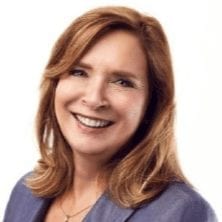
Susan Beardslee, Principal Analyst at ABI Research, also known as “the truck lady”, provides global freight transportation and logistics research coverage, including commercial vehicle hardware, software, business strategy and multi-modal service models. She leads research on emerging areas such as electrification and alt-fuels, prognostics, ” as a service” offerings and supply chain data management solutions. Susan’s background includes relevant experience in embedded technologies and IoT, advanced automotive, transport, and UAVs. She previously worked for Intel and ON Semiconductor and held a variety of positions with other semiconductor manufacturers and suppliers. She assumed roles in market research, as well as strategy, operations management, competitive analysis, and IT, including cyber-security management. Learn more about ABI Research: https://www.abiresearch.com/
